As we have with the COI Inquiry and other important milestones, Grubsheet is publishing the full landmark Supreme Court decision that has rejected any return to the 1997 Constitution but has made it easier to amend the 2013 Constitution, which it has established as the legitimate supreme law of Fiji.
We are doing so not just for the benefit of the nation’s lawyers, law students and amateur constitutional sleuths. The ruling fundamentally affects the rights of every Fijian and as such, has implications for every citizen.
We’ve already published a summary of the ruling by two local judges – the Chief Justice, Salesi Temo and the President of the Court of Appeal, Justice Isikeli Mataitoga – plus a bevy of foreign judges including the former Chief Justice of Australia, Robert French. But in its full judgment, the Supreme Court explains the basis on which its conclusions have been reached.
It isn’t exactly light reading but is an important document that deserves to be widely circulated because the Coalition is going to use it to push through major changes to 2013 Constitution, including a referendum of all voters.
NOTE 1: The version we first published on Sunday was missing 6 pages, the first of which were vitally important in explaining what the Supreme Court was asked to do. Thanks to a valuable source who shall remain nameless, these have now been inserted and the document is complete. Vinaka vakalevu.
NOTE 2: Keen-eyed readers will notice that Siromi Turaga is listed as the substantive Attorney General when he is merely acting in the position and Isikeli Mataitoga is listed as a Judge of the Supreme Court when he is President of the Court of Appeal and if tradition is to be followed, cannot sit on the Supreme Court. Only in Fiji, eh?
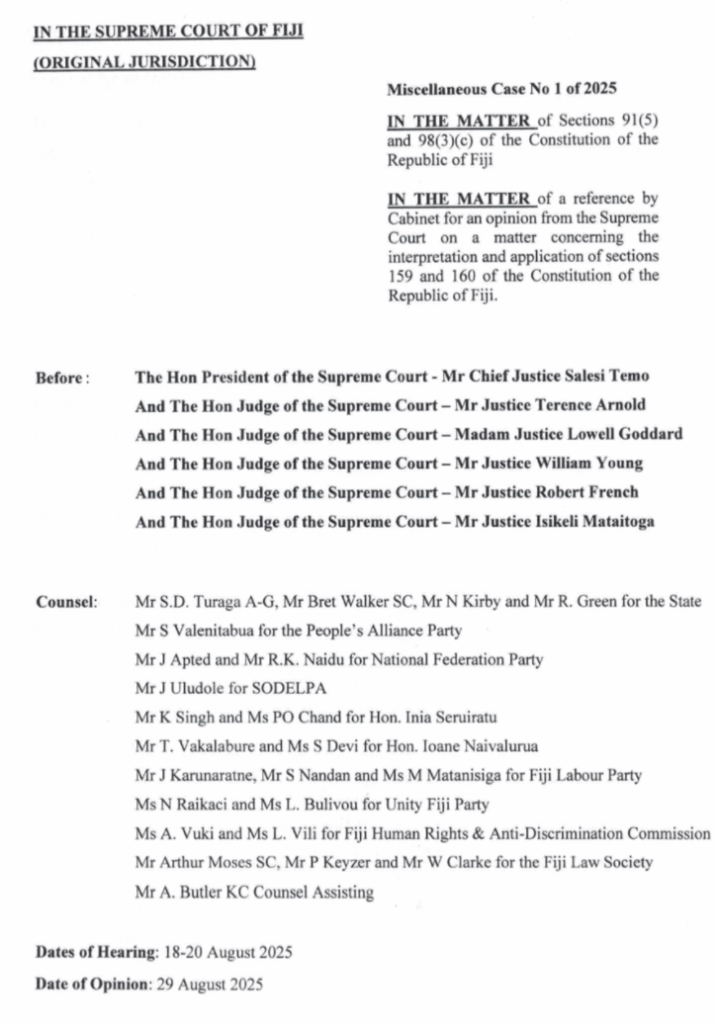
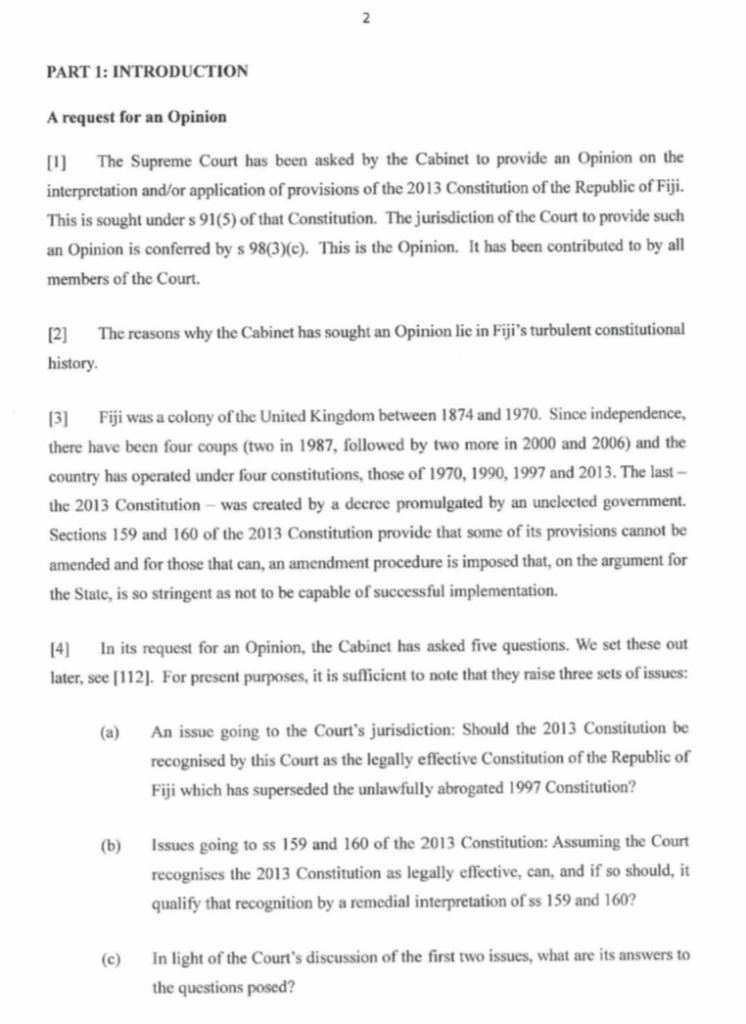
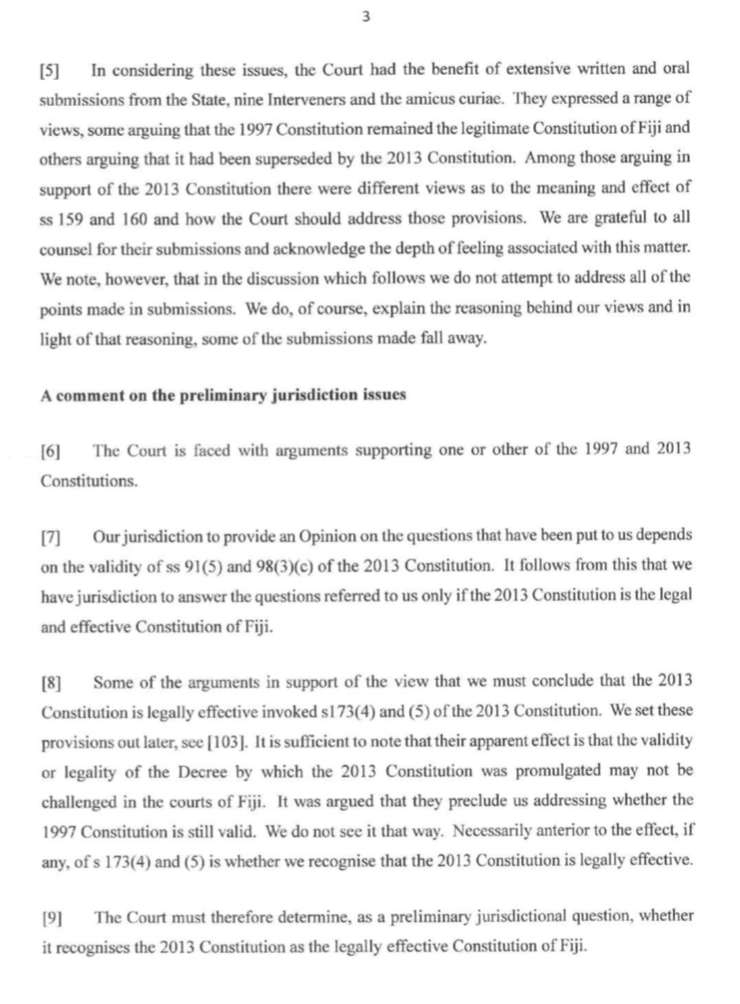
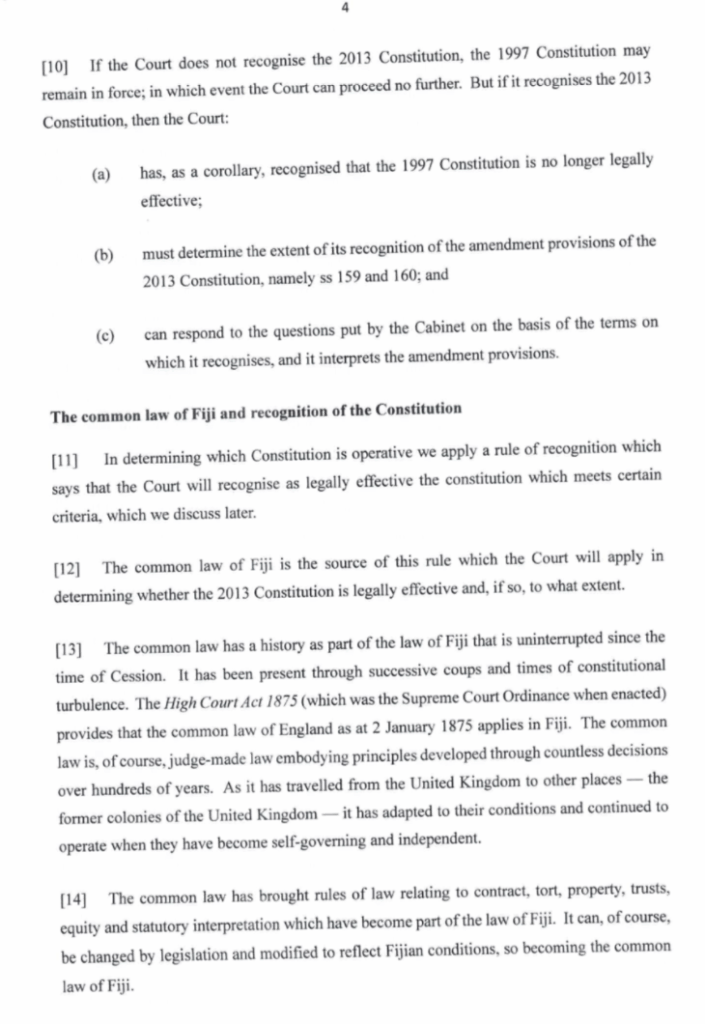
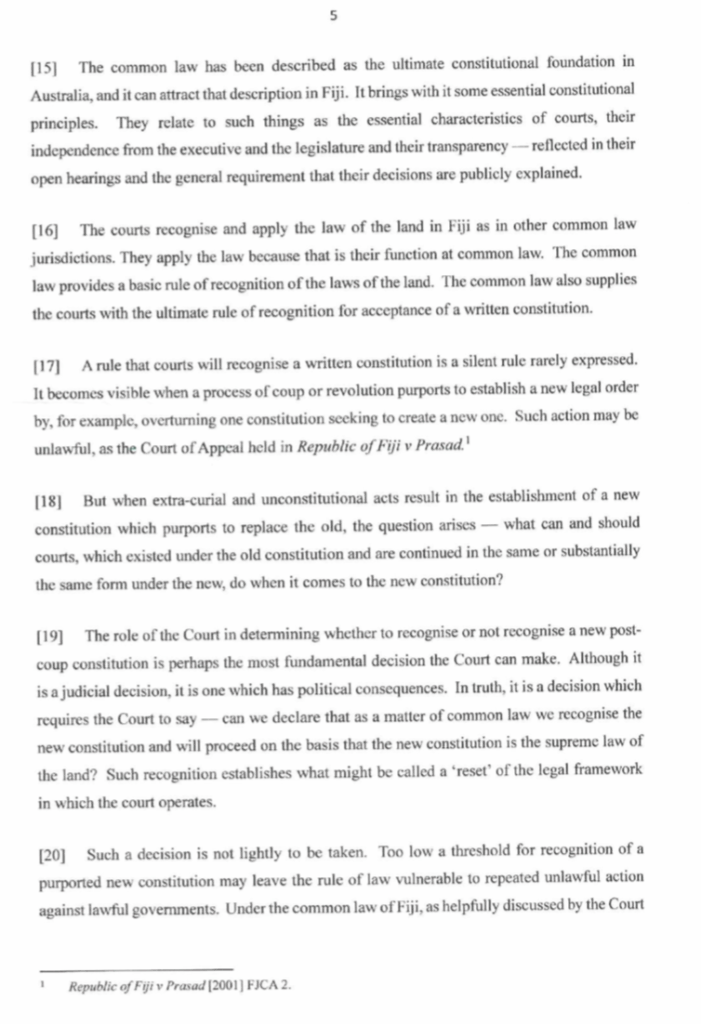
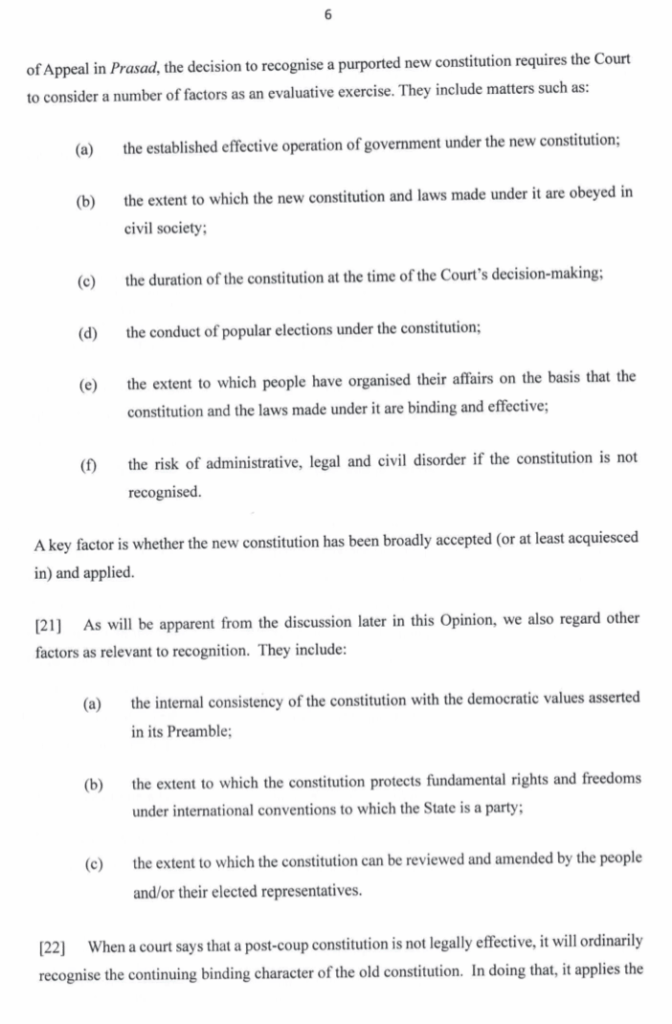
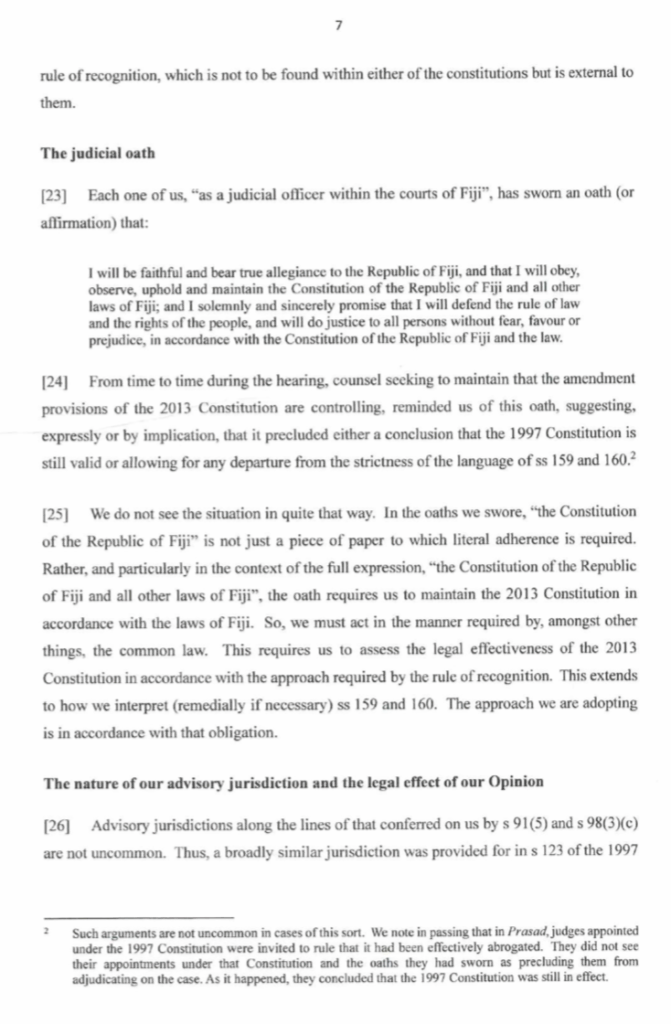
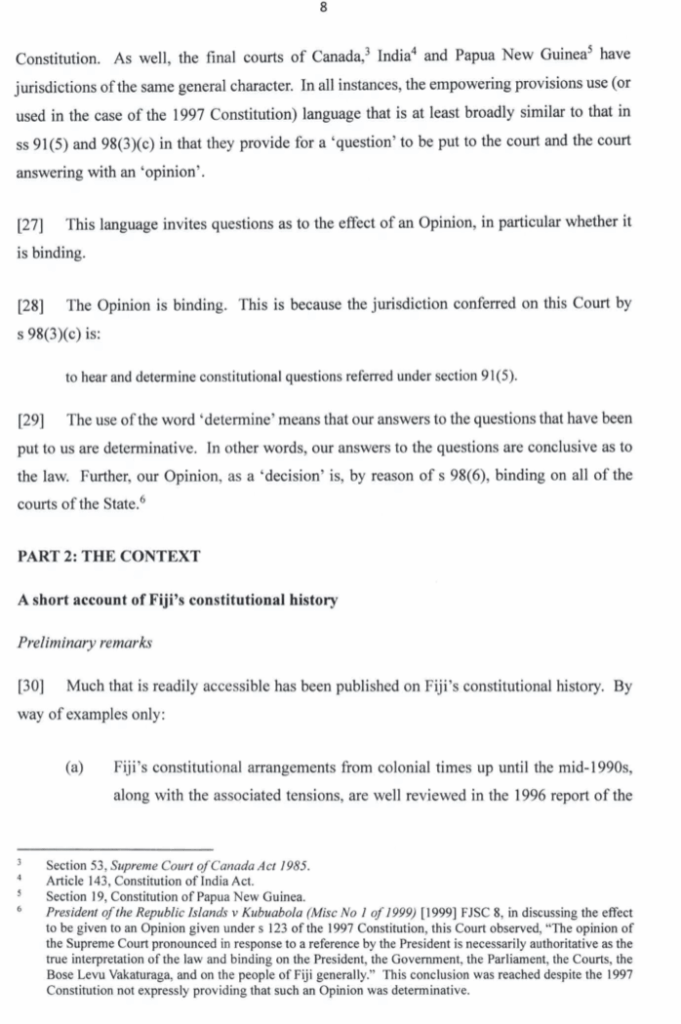
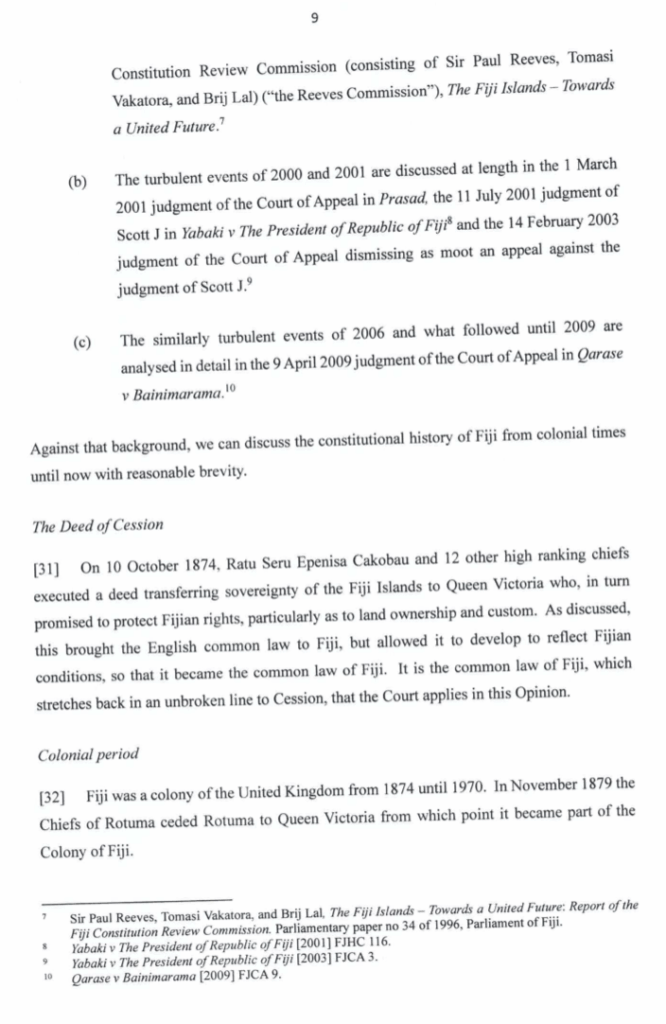
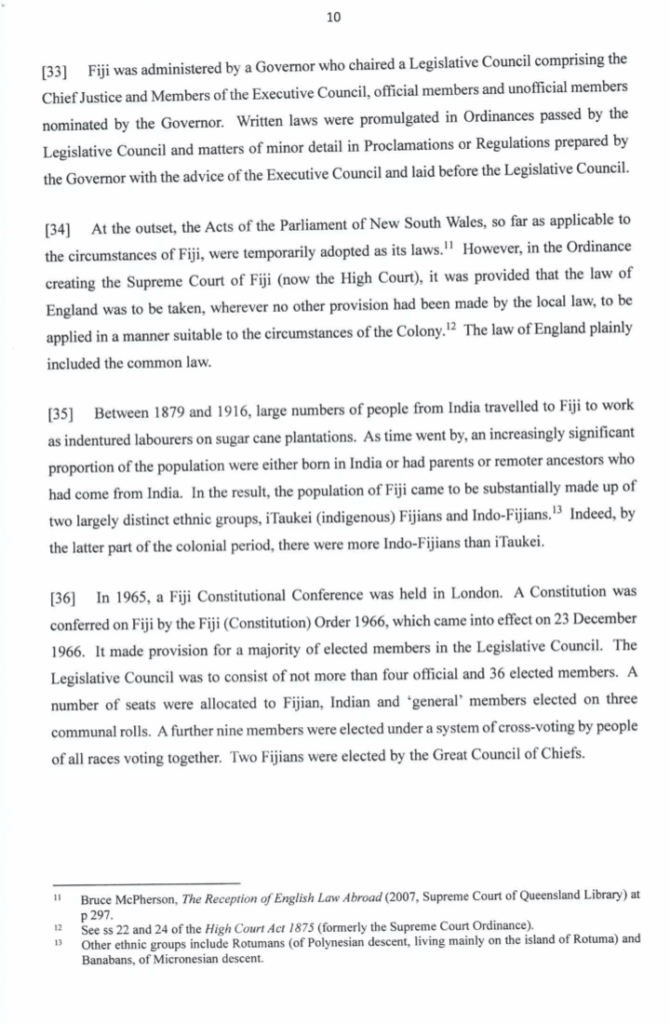
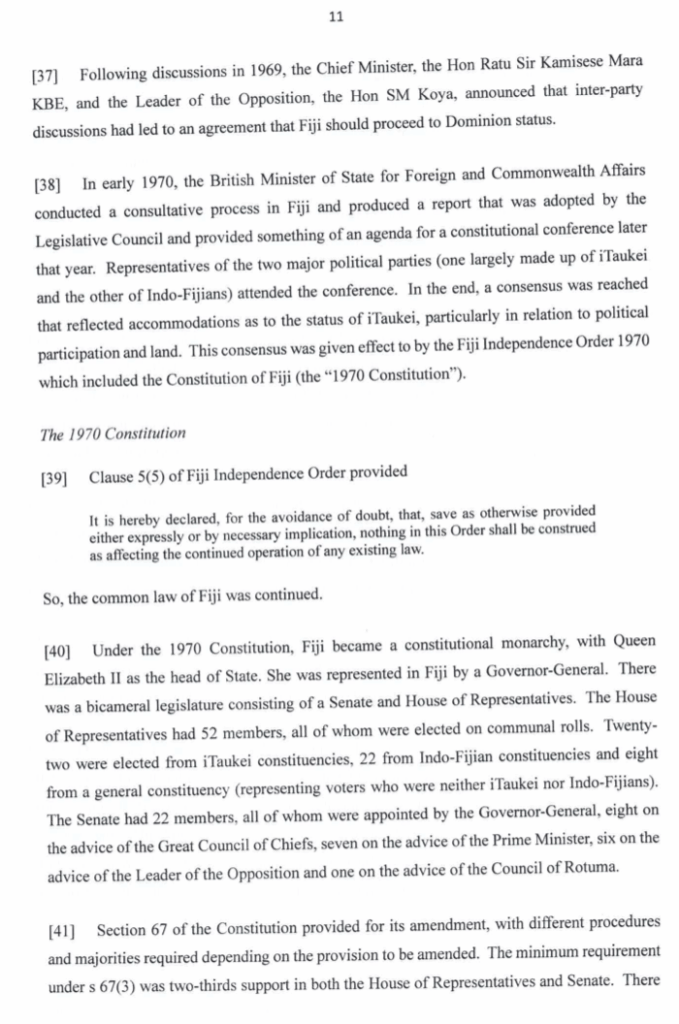
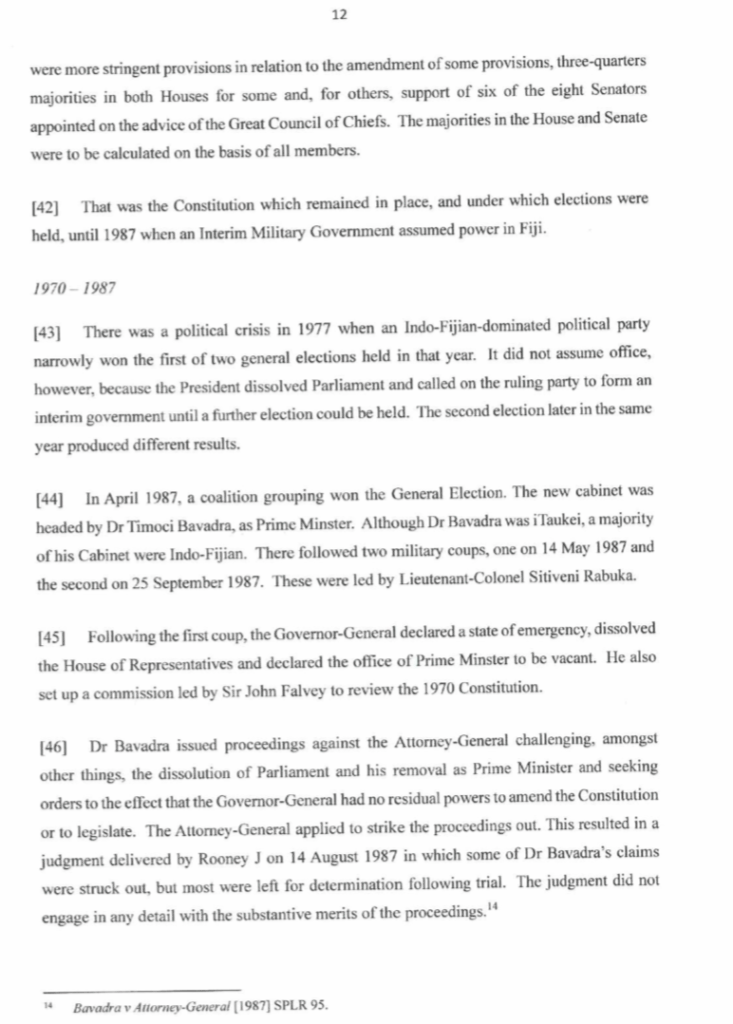
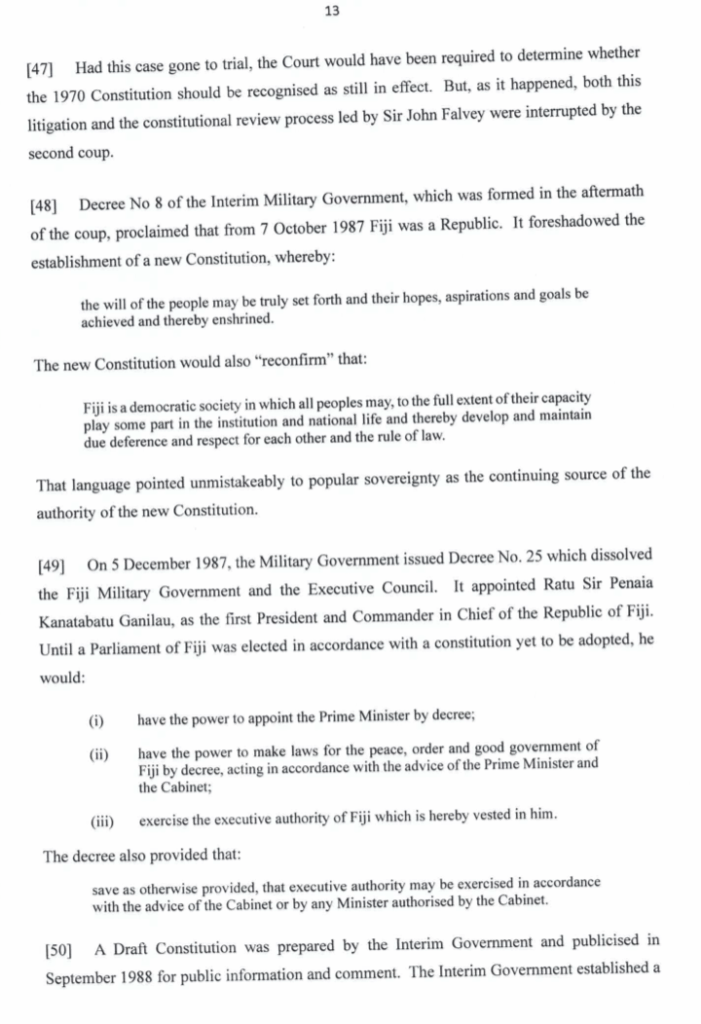
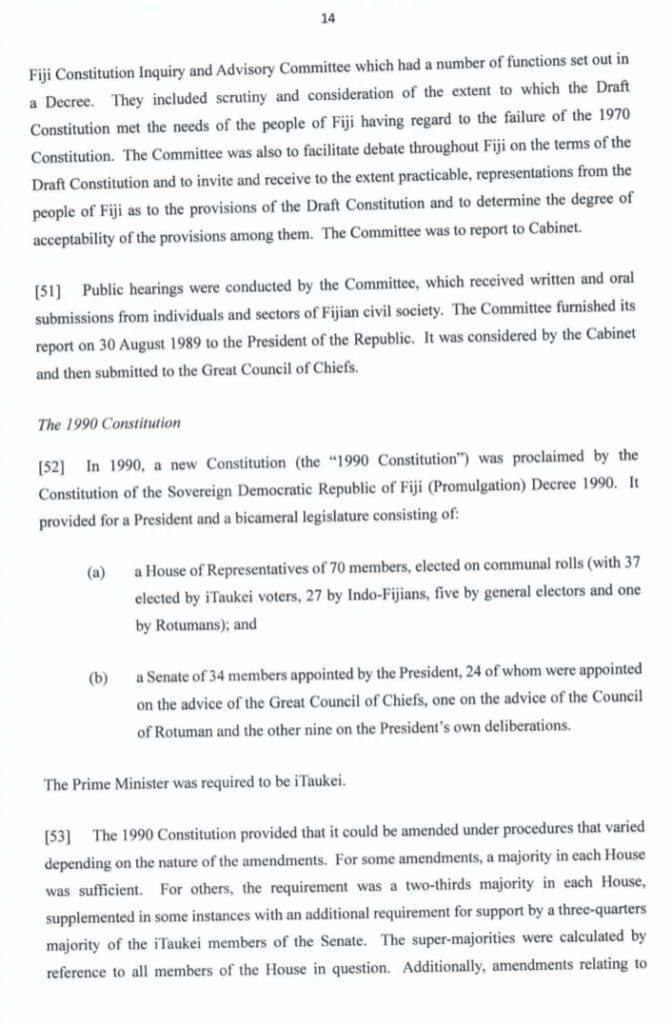
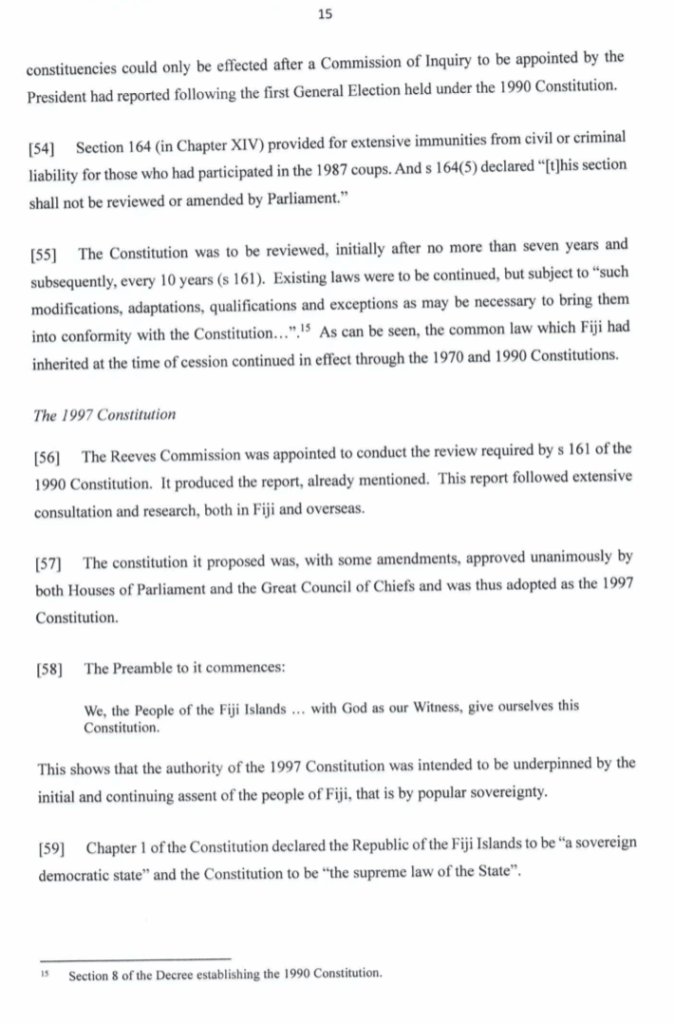
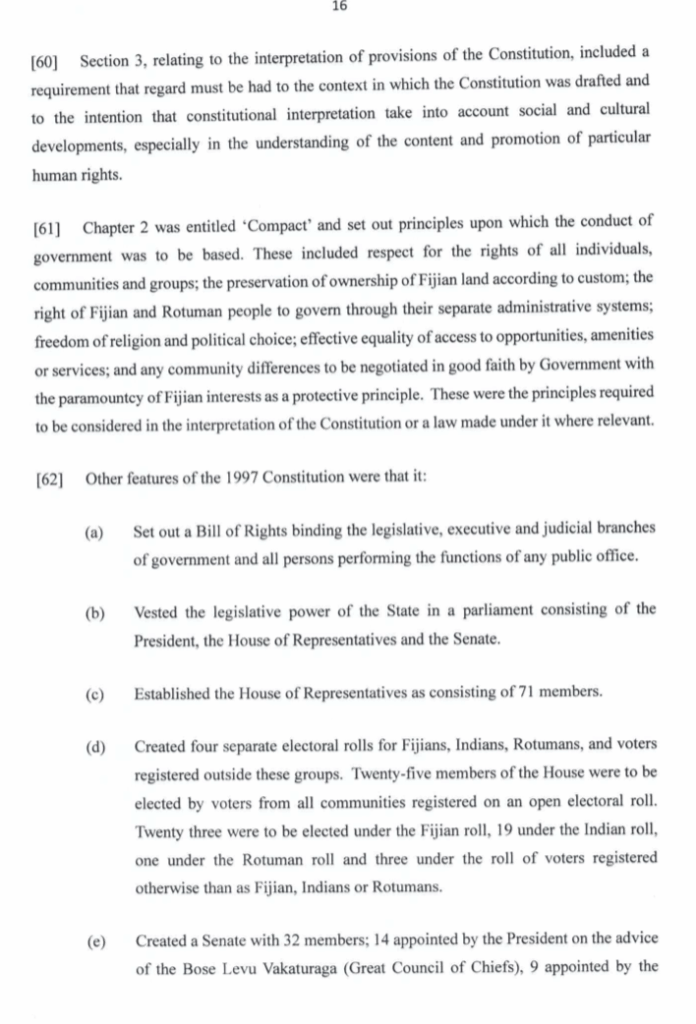
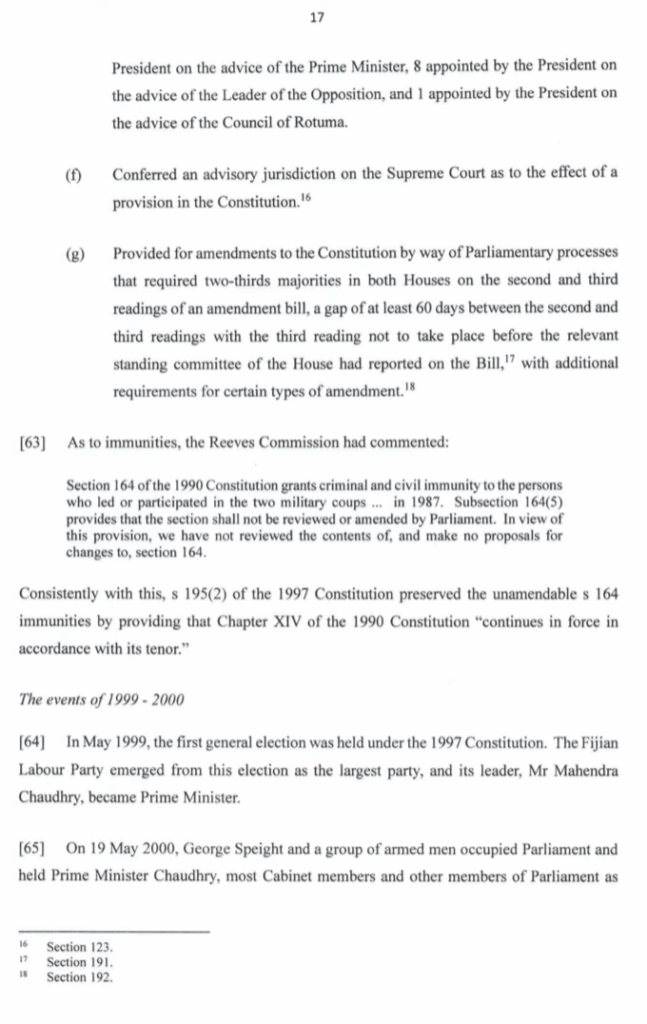
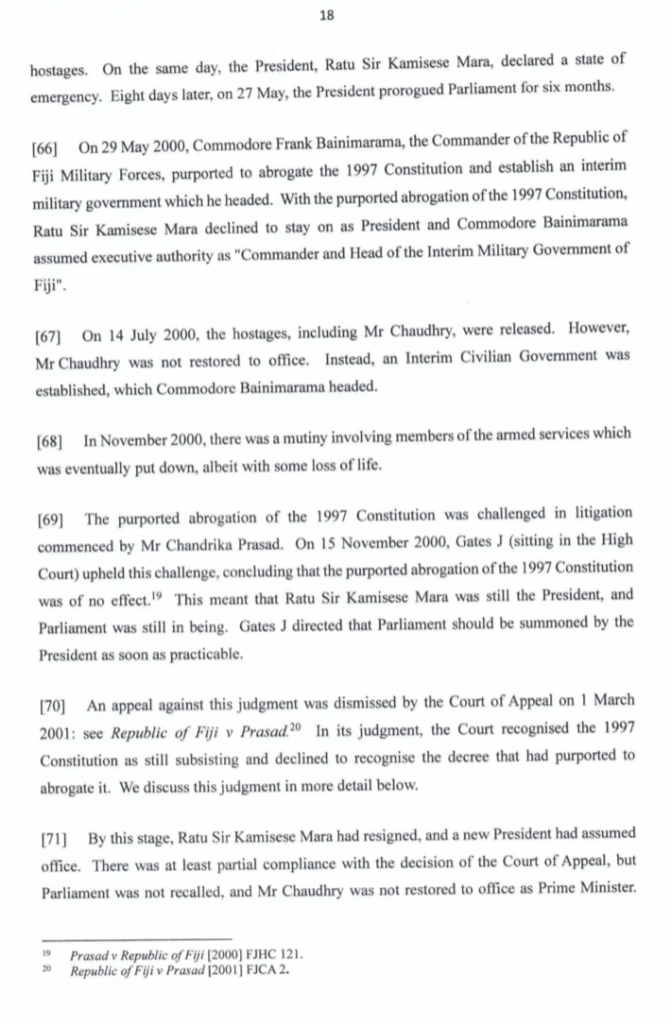
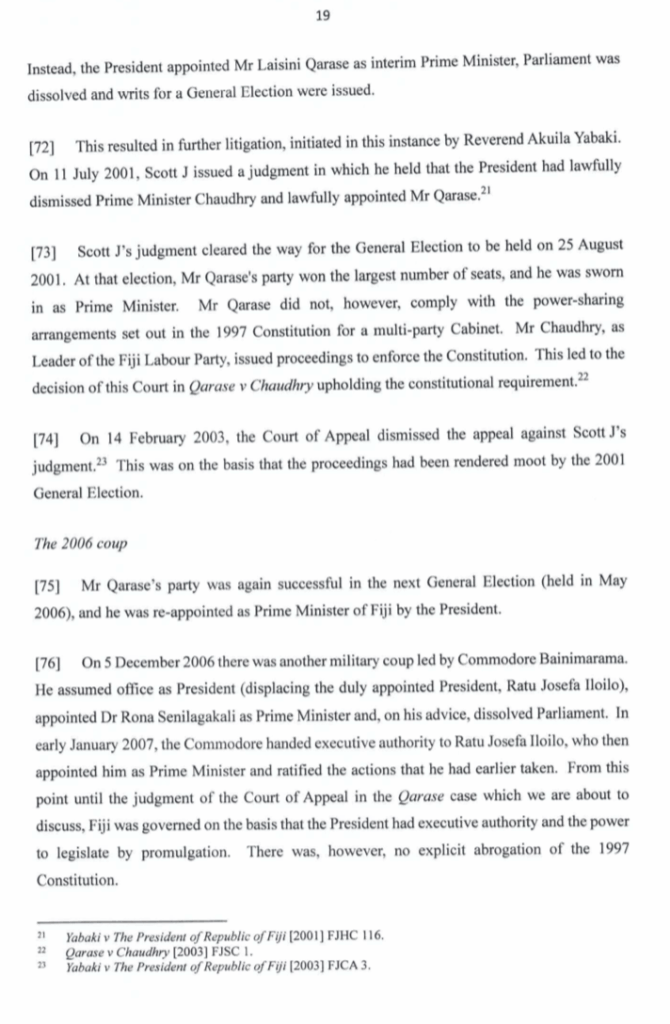
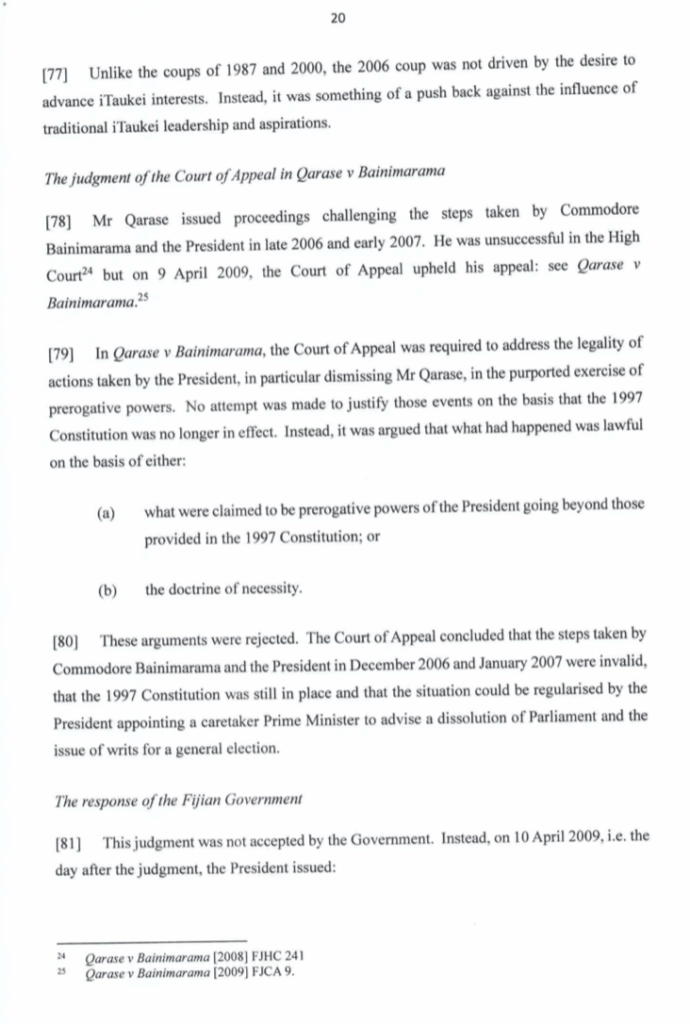
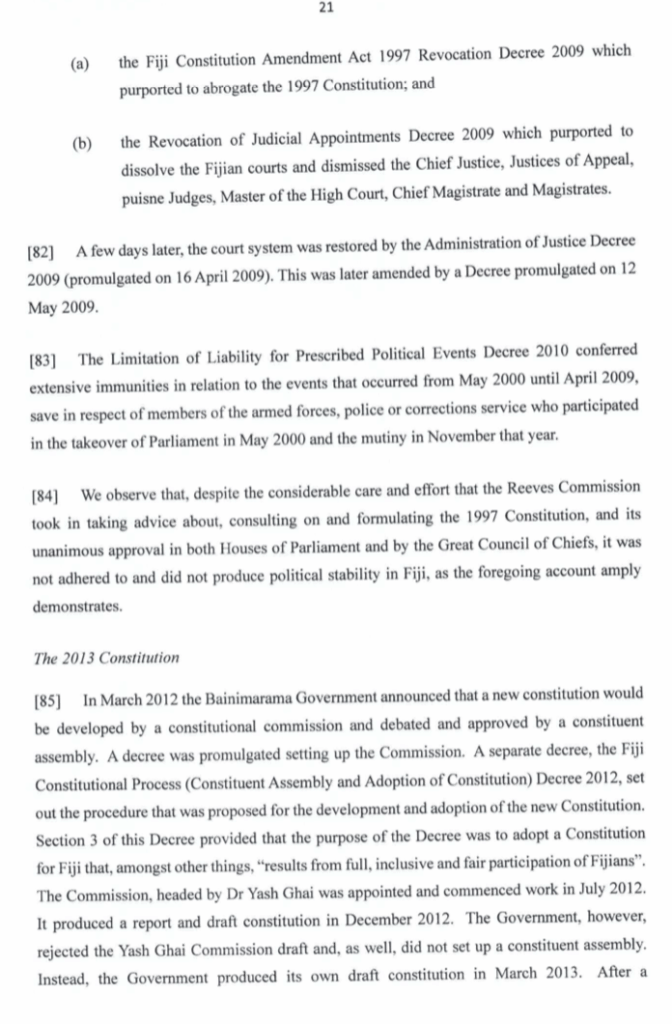
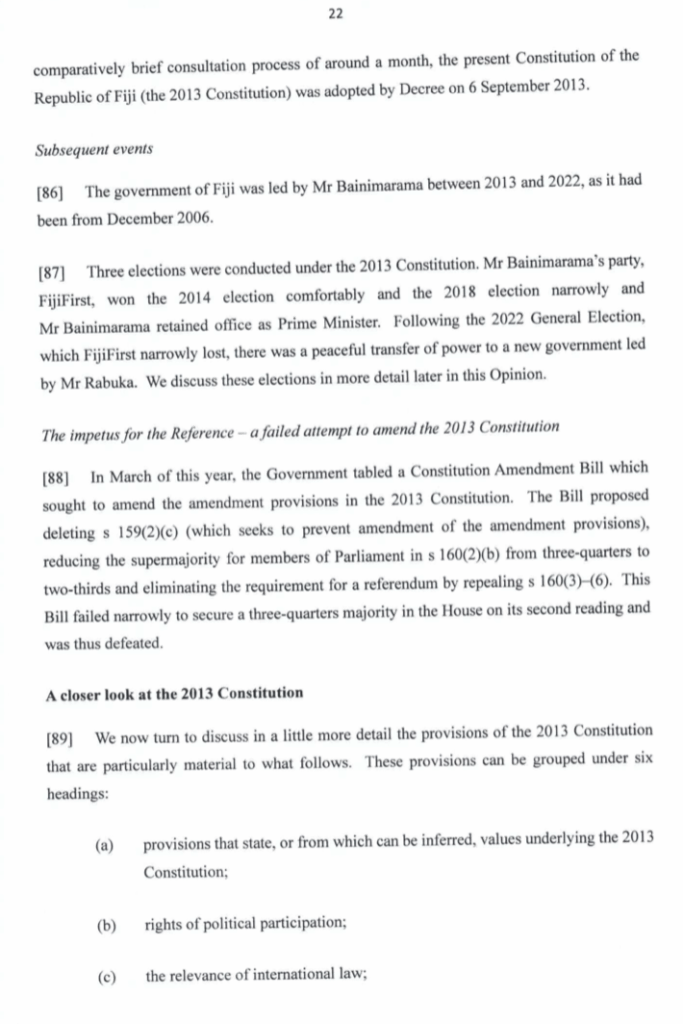
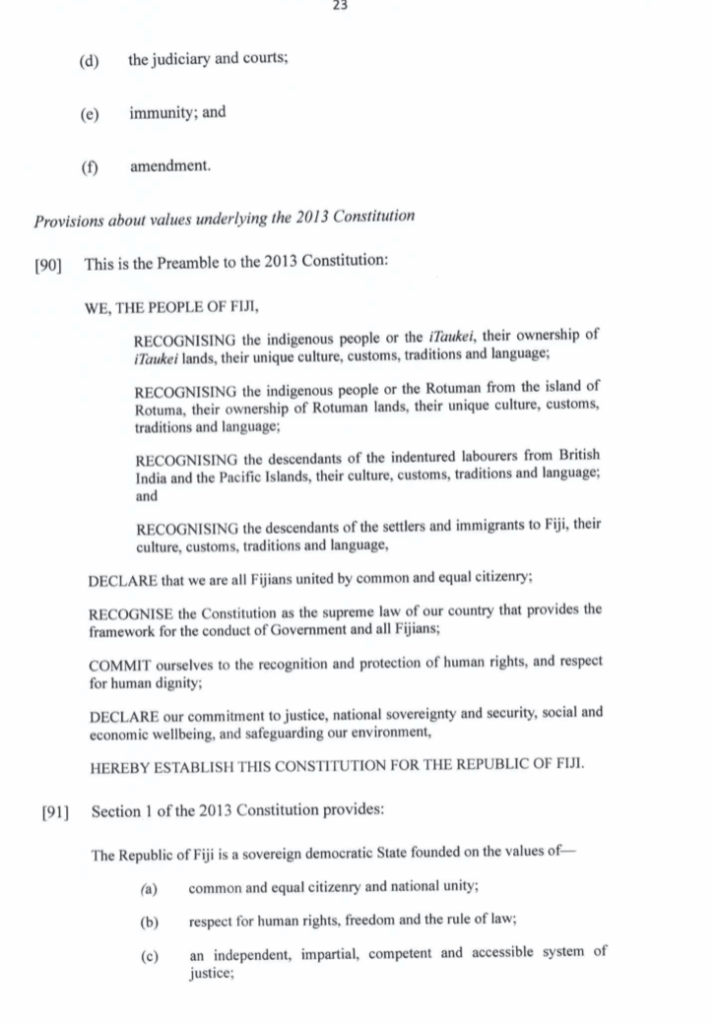
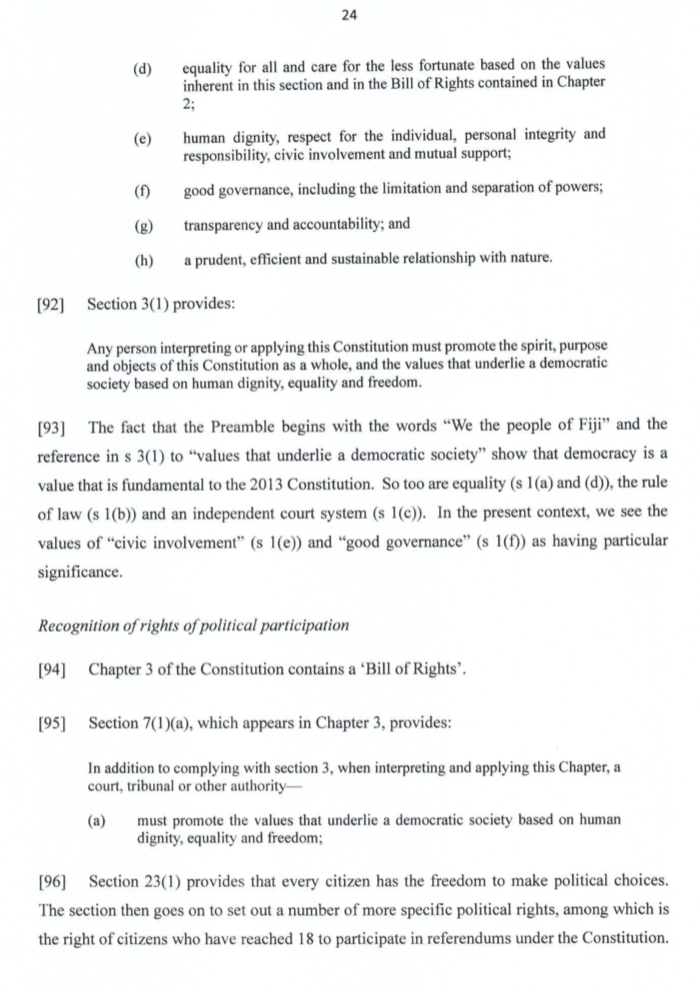
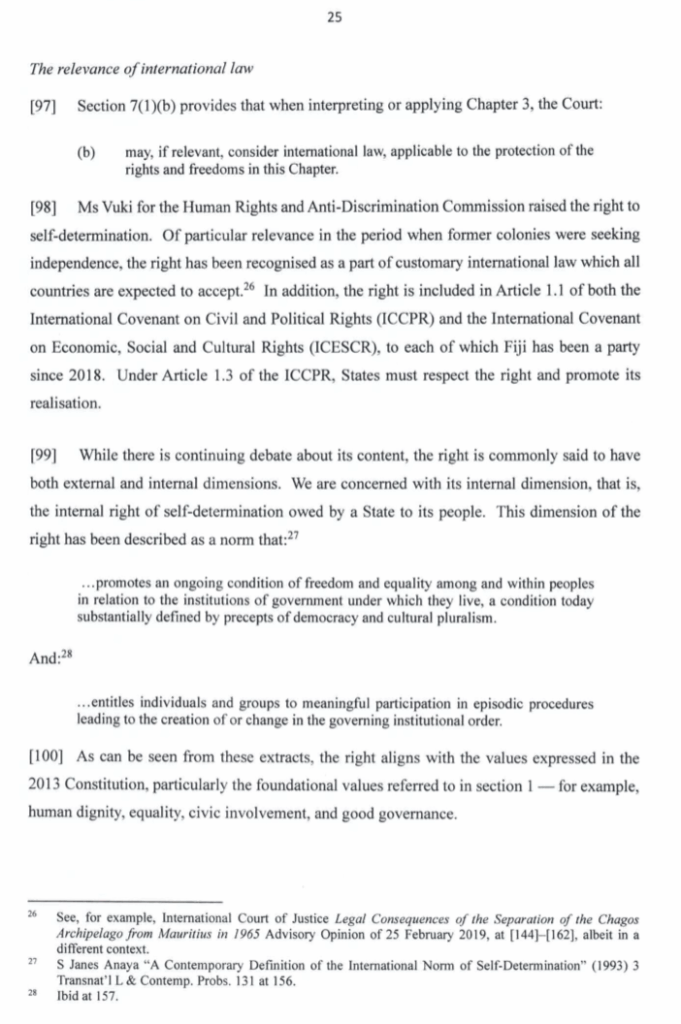
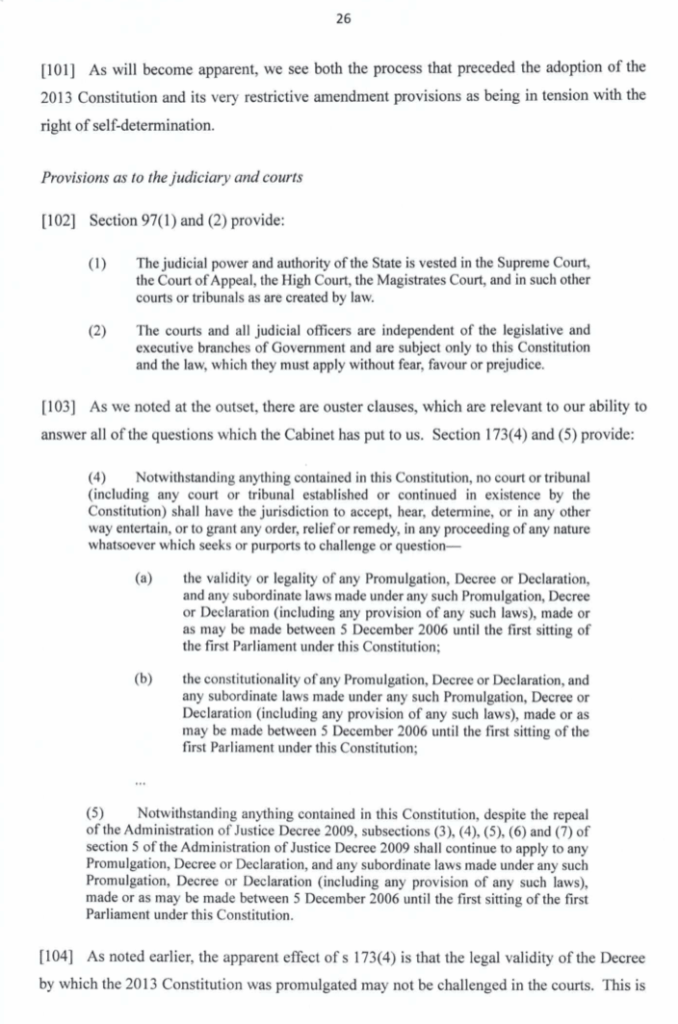
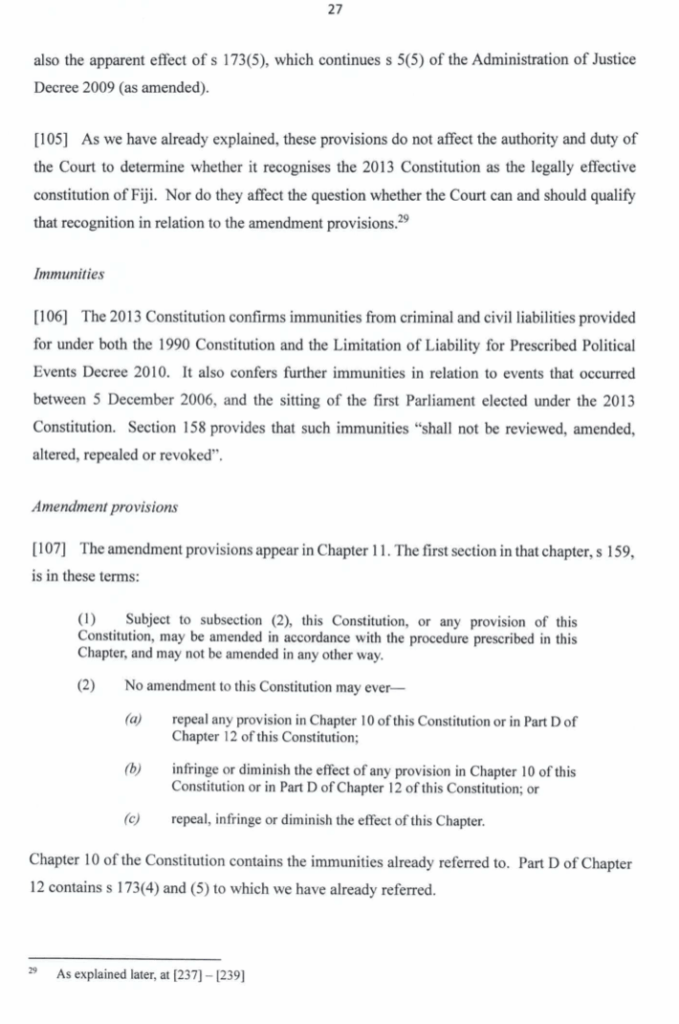
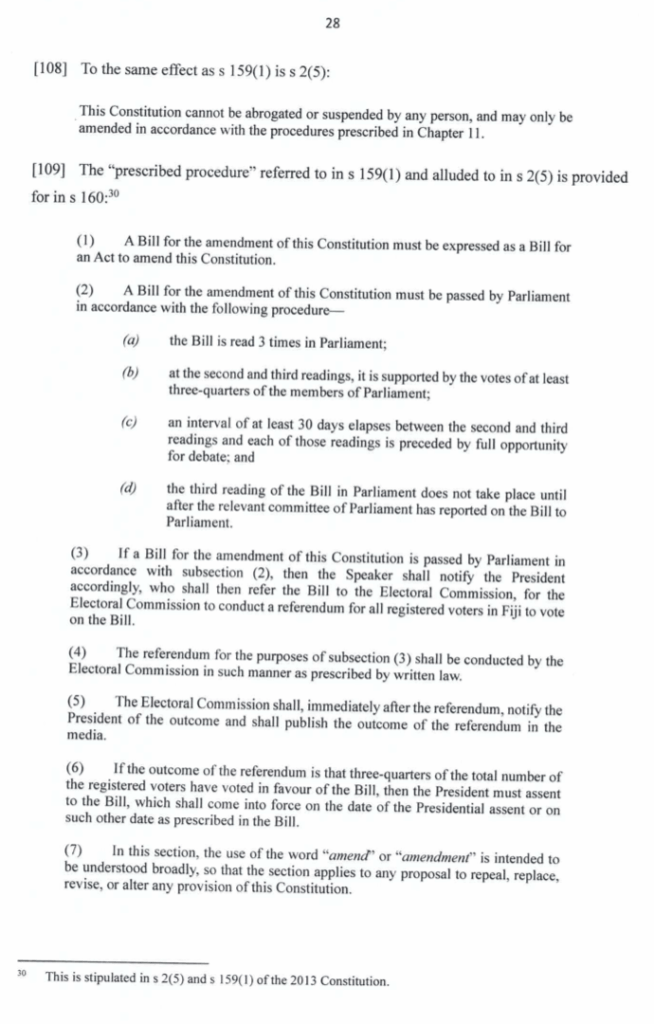
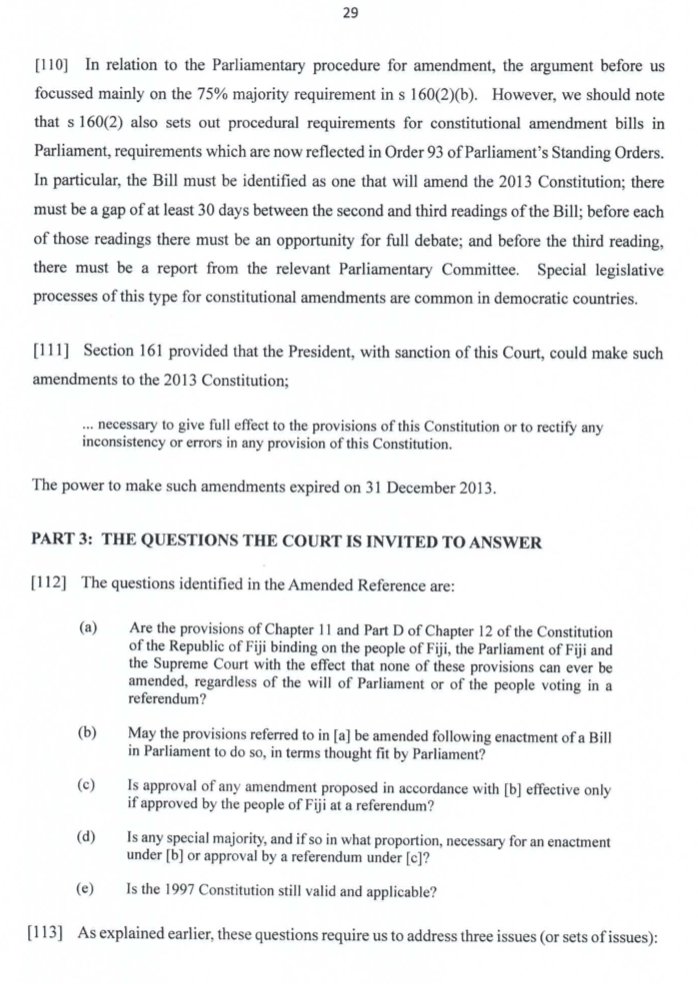
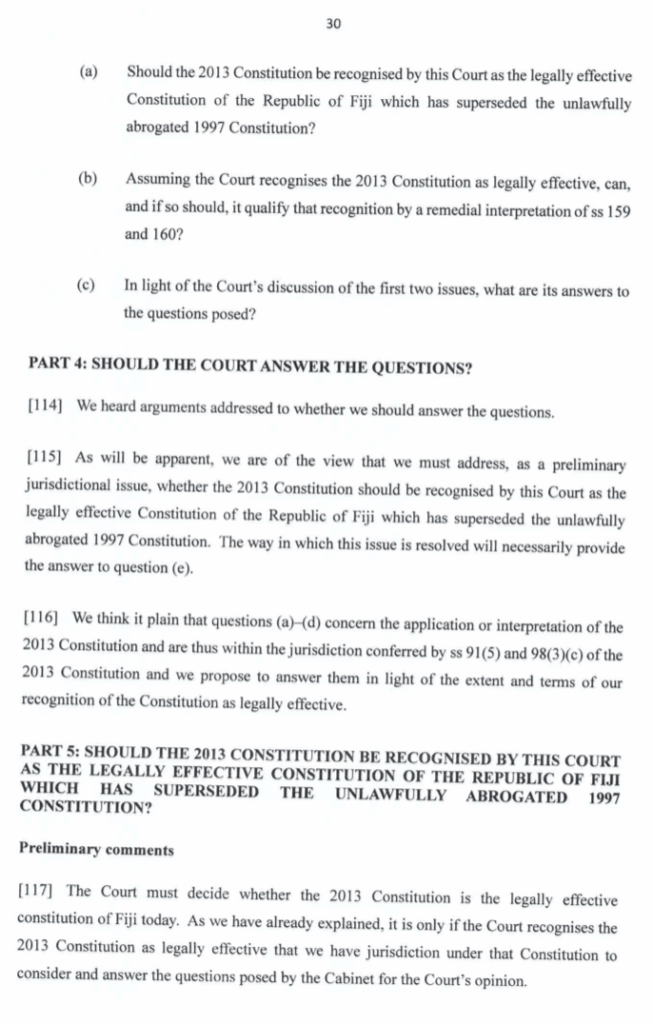
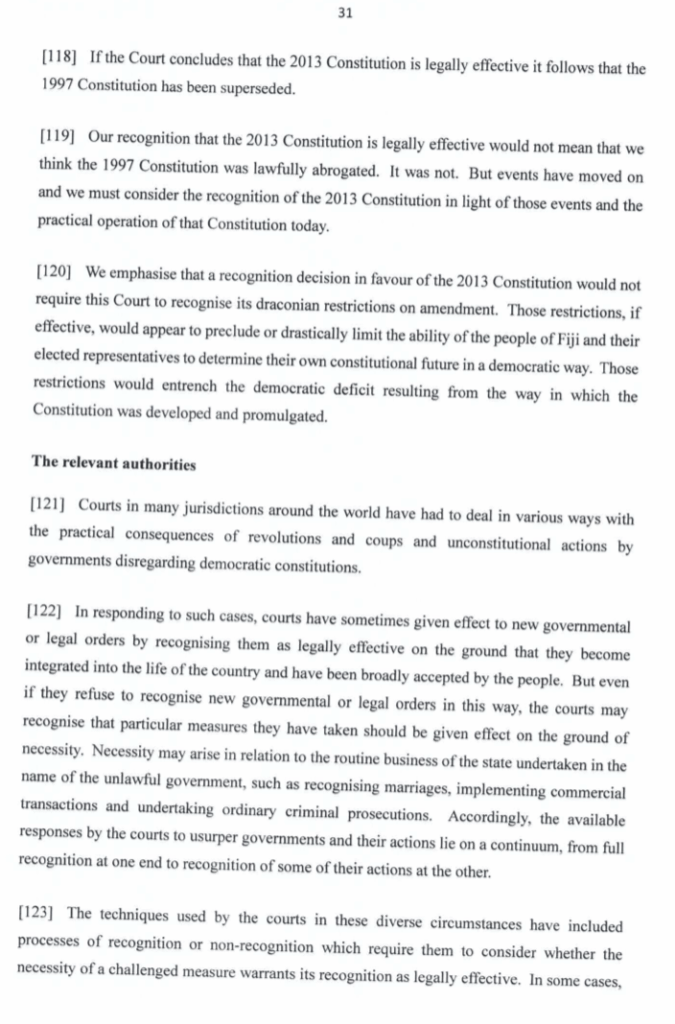
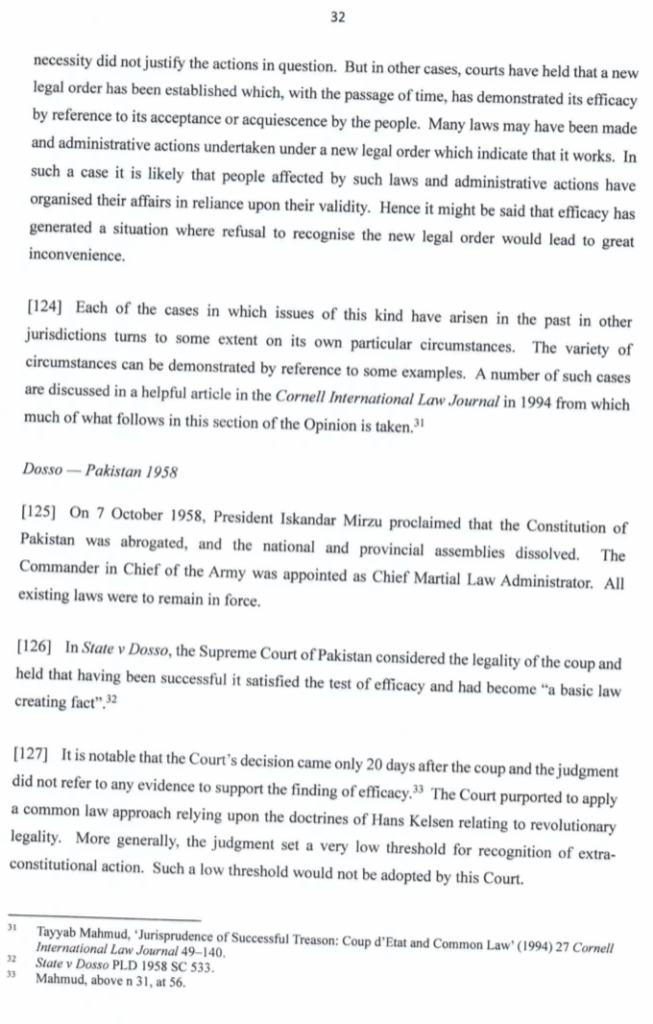
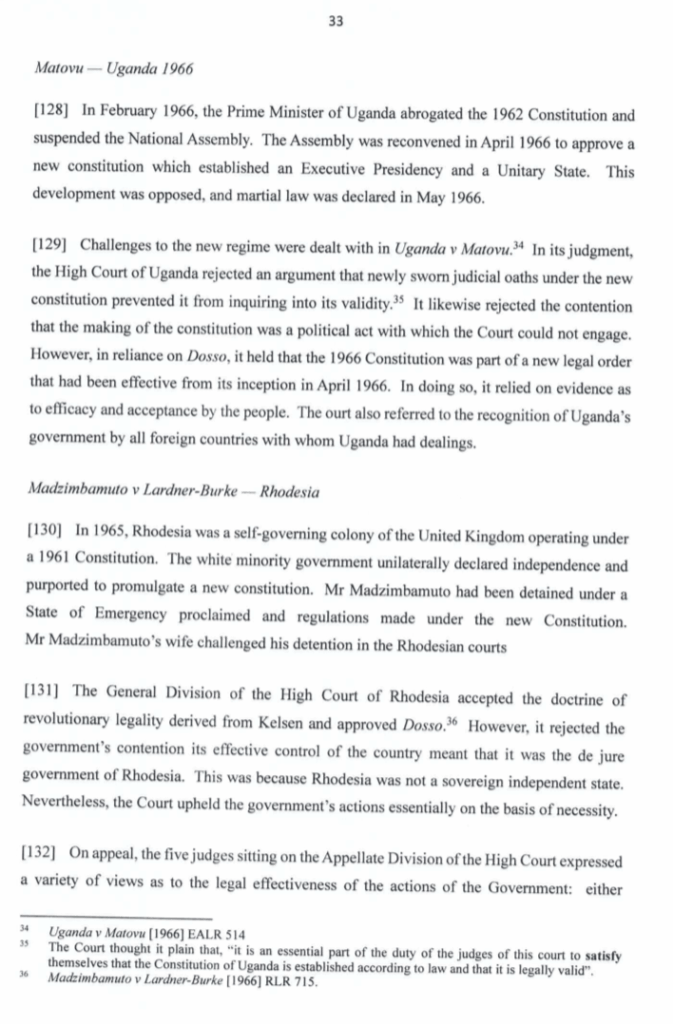
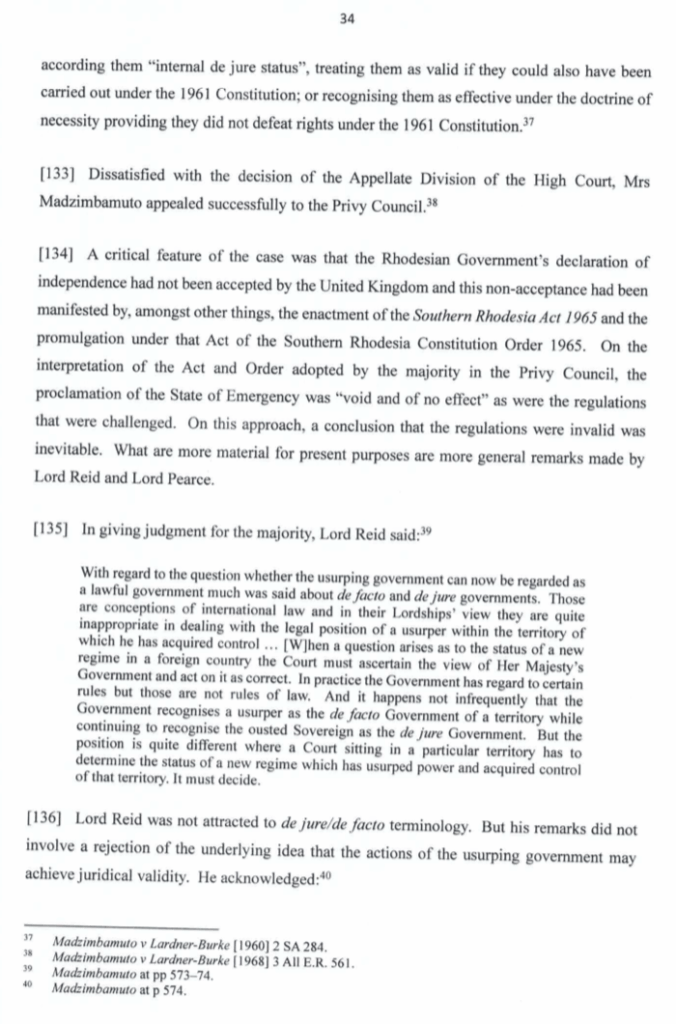
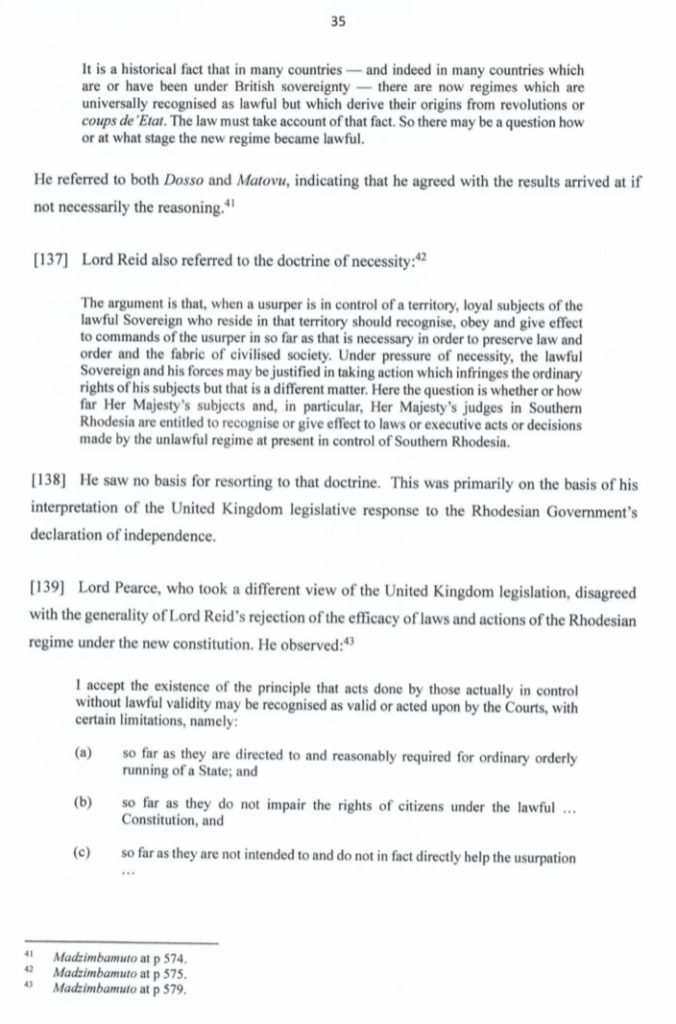
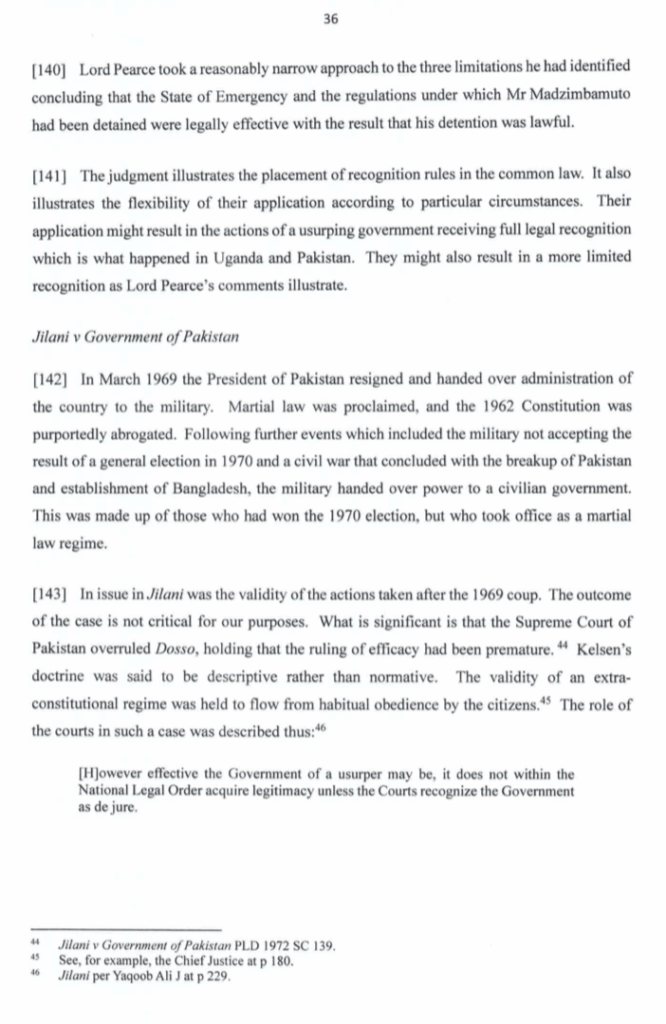
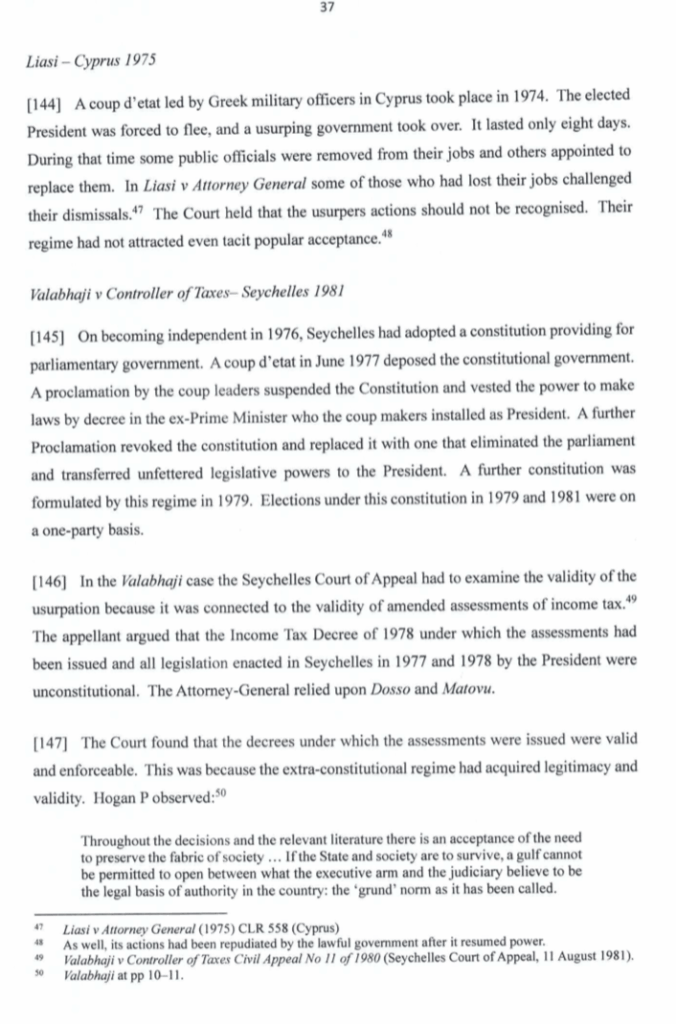
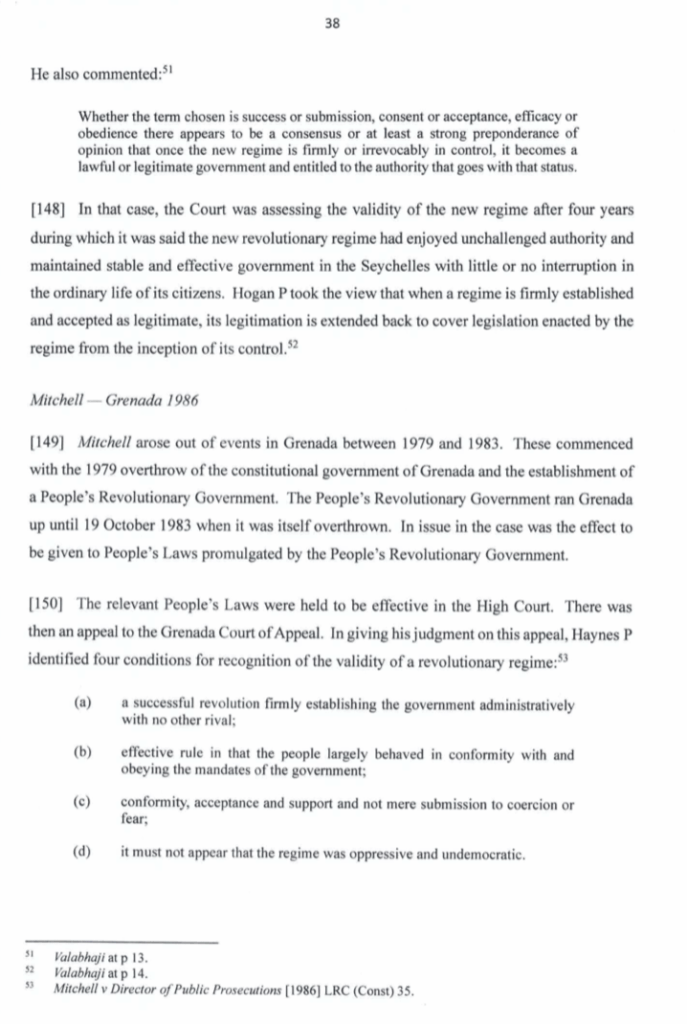
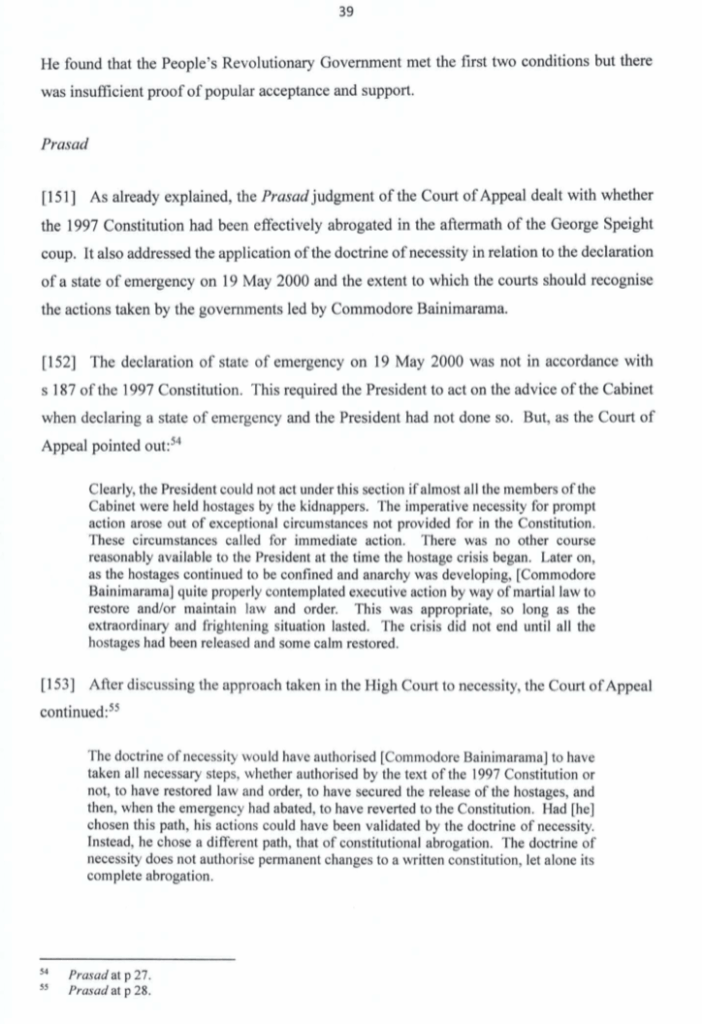
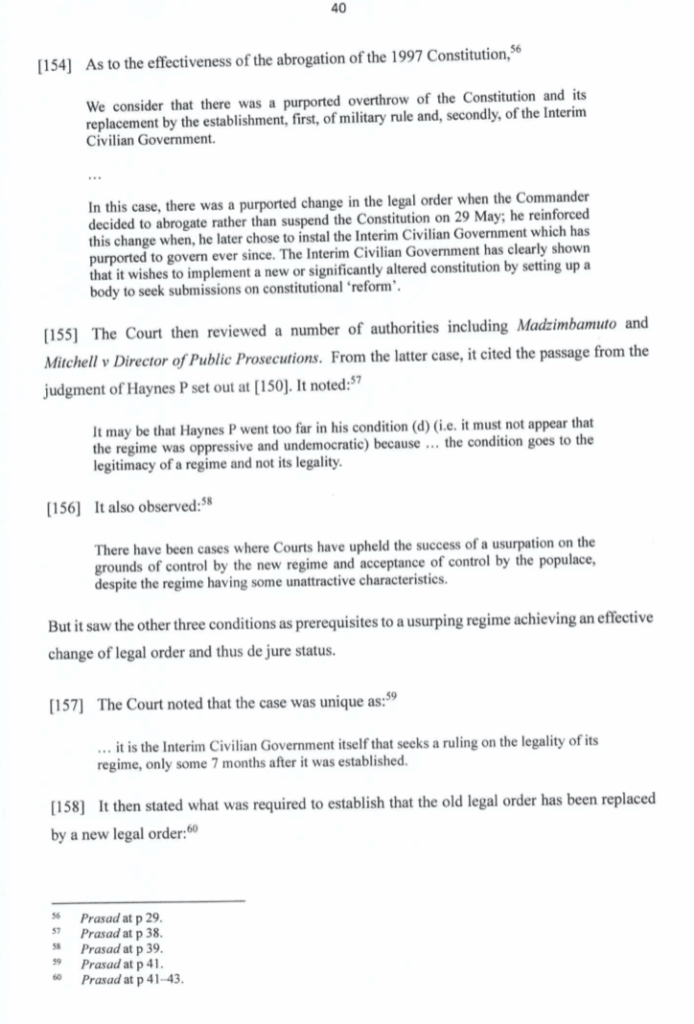
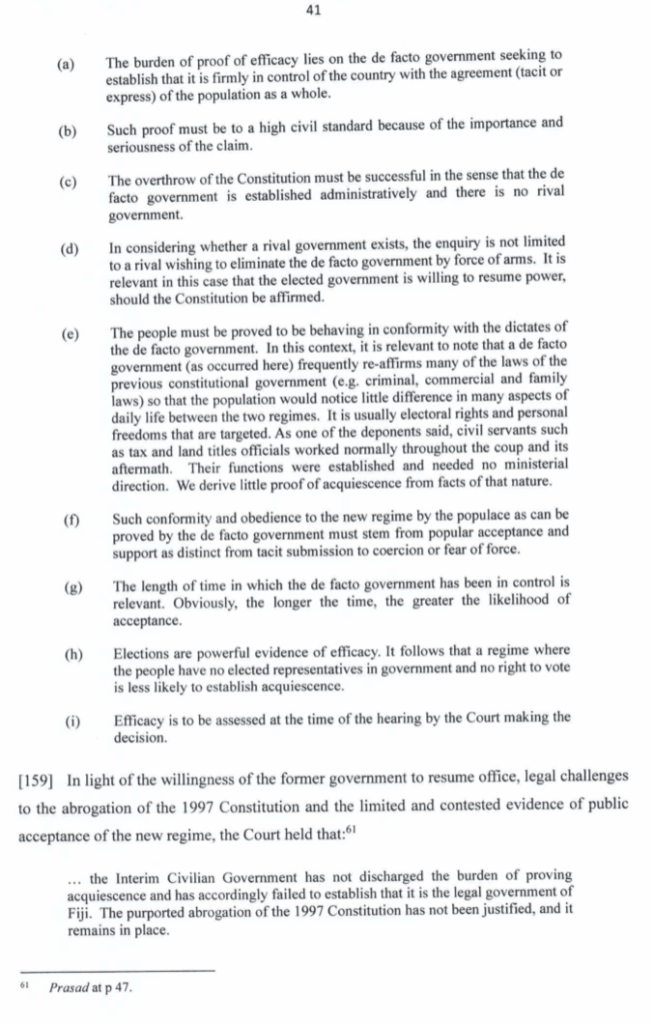
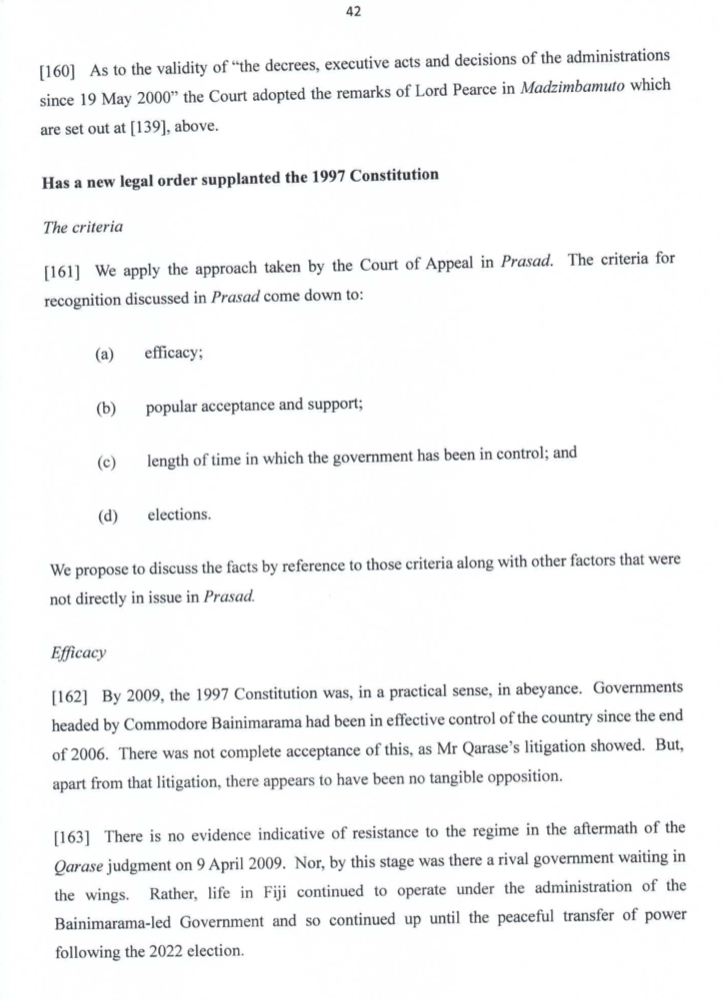
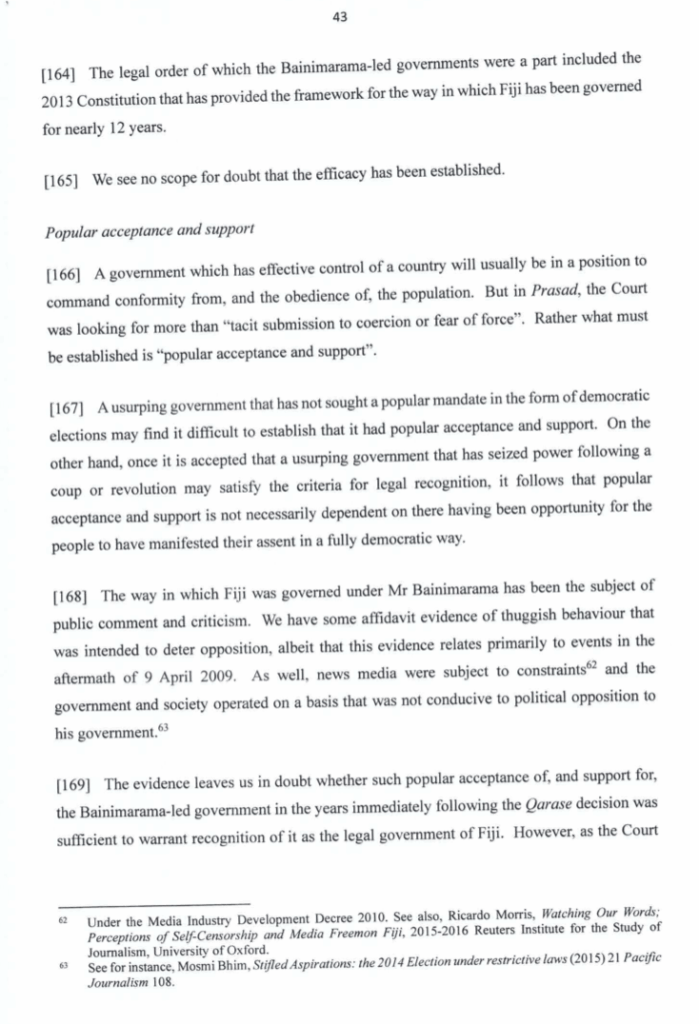
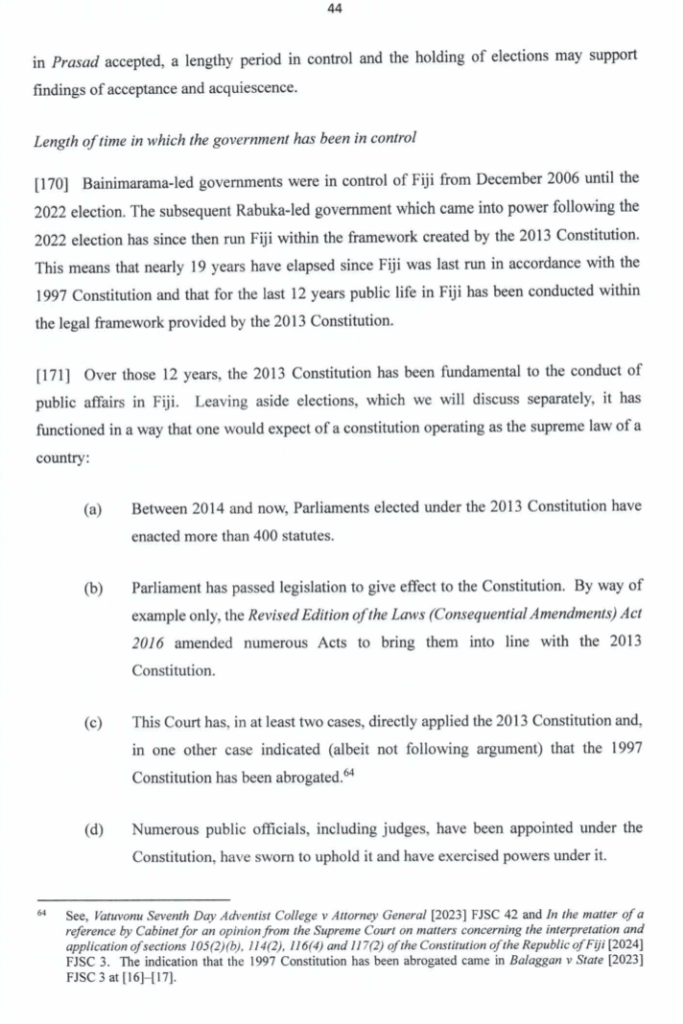
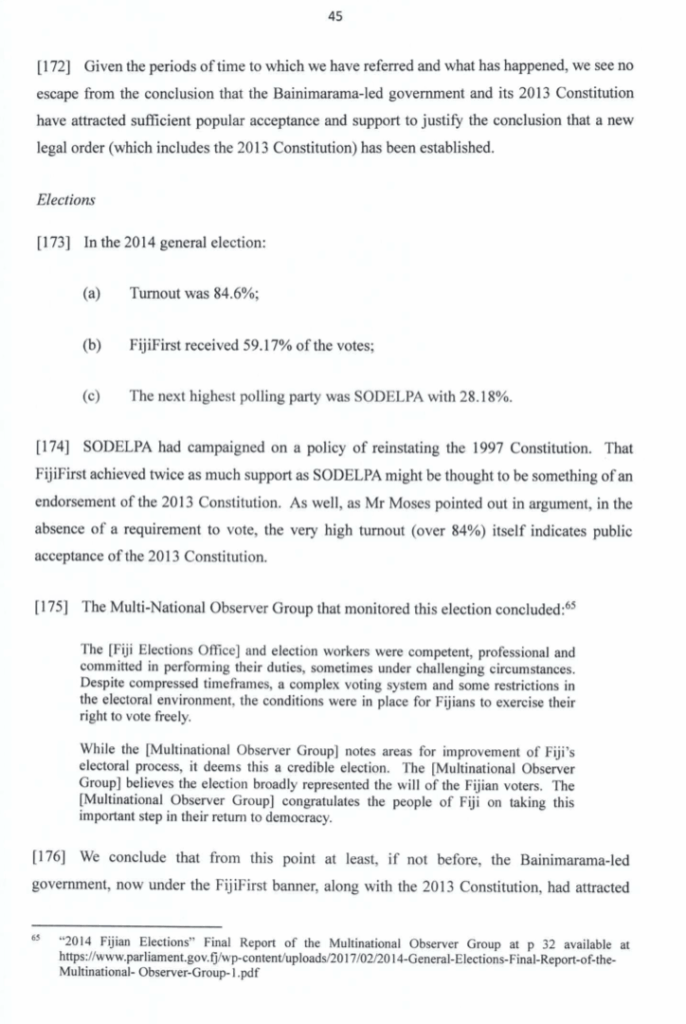
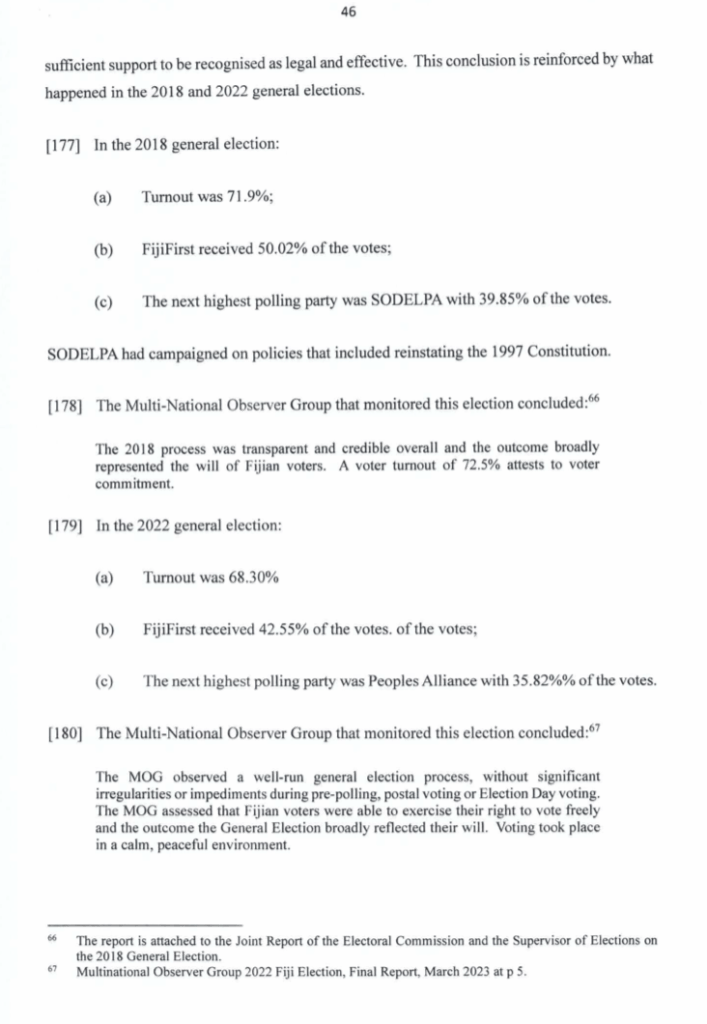
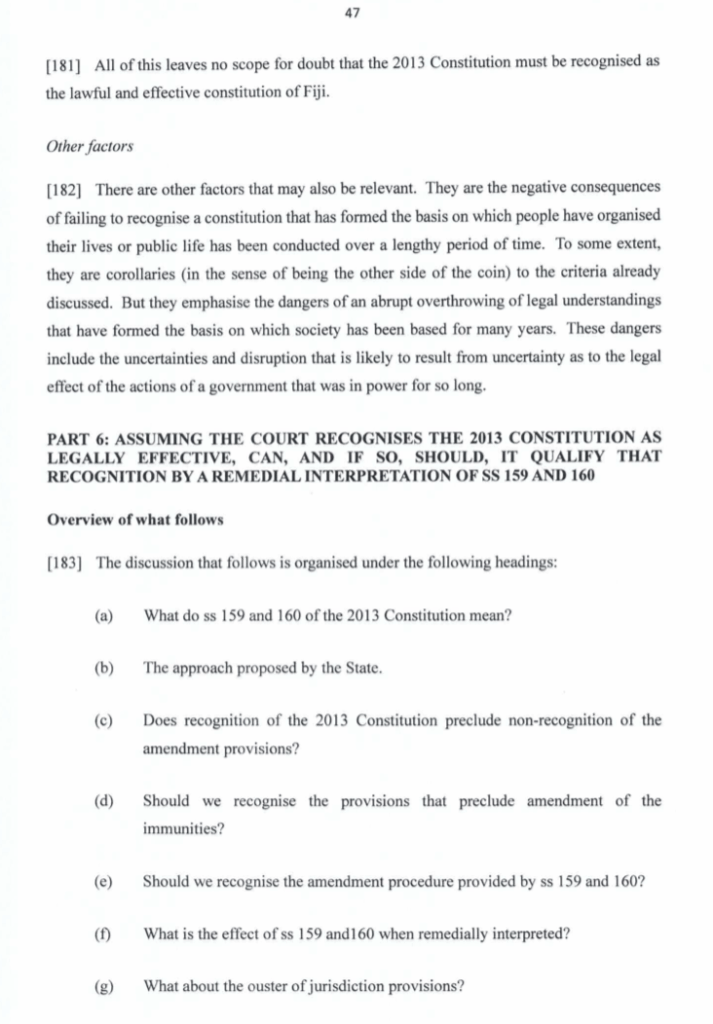
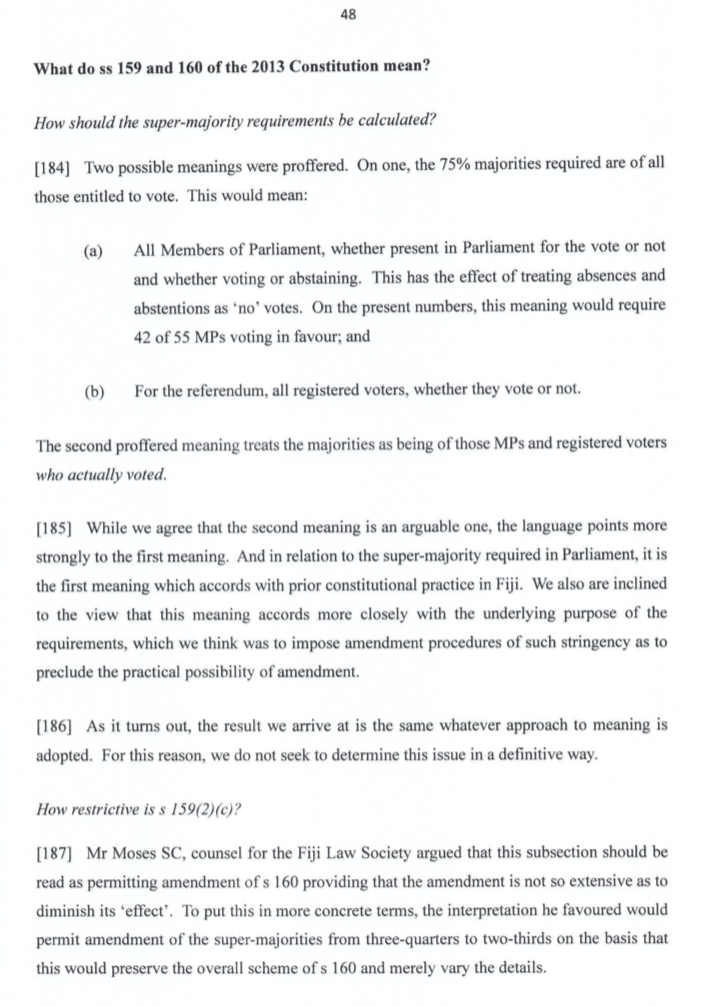
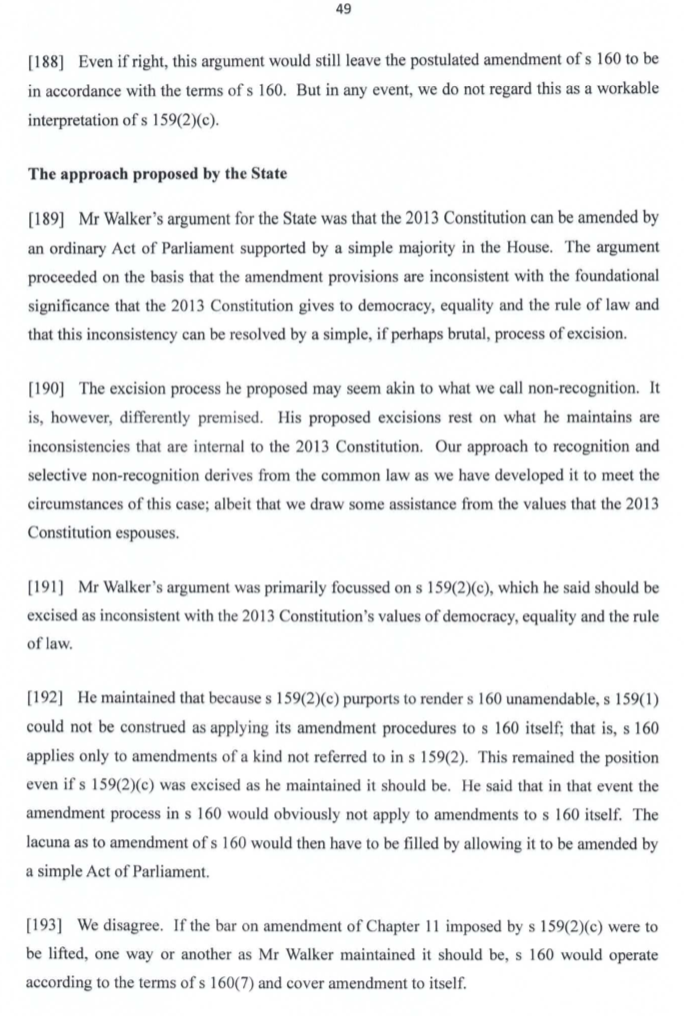
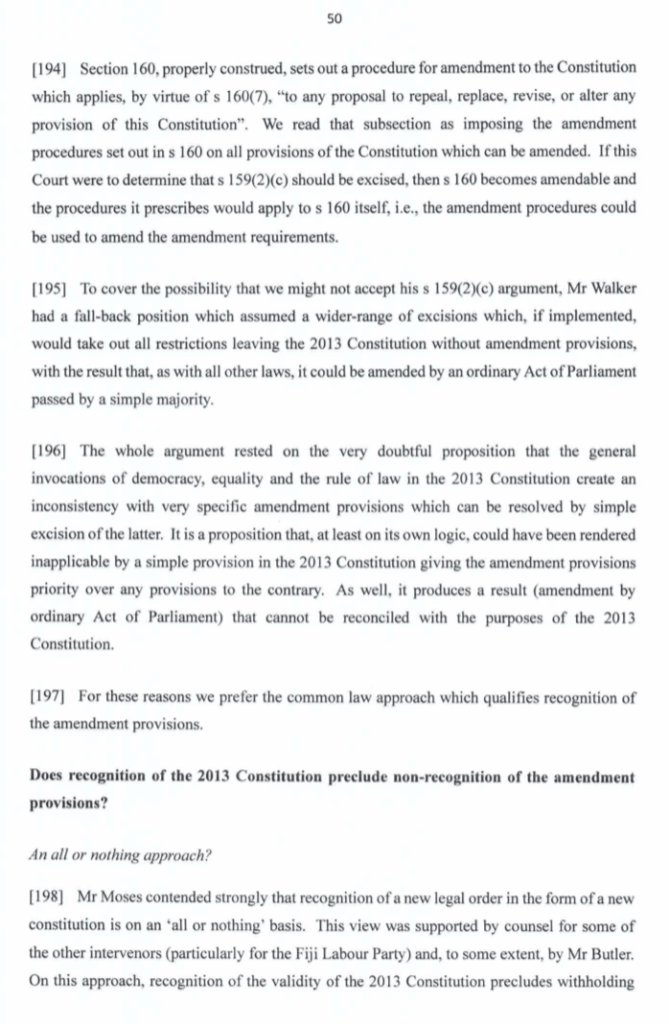
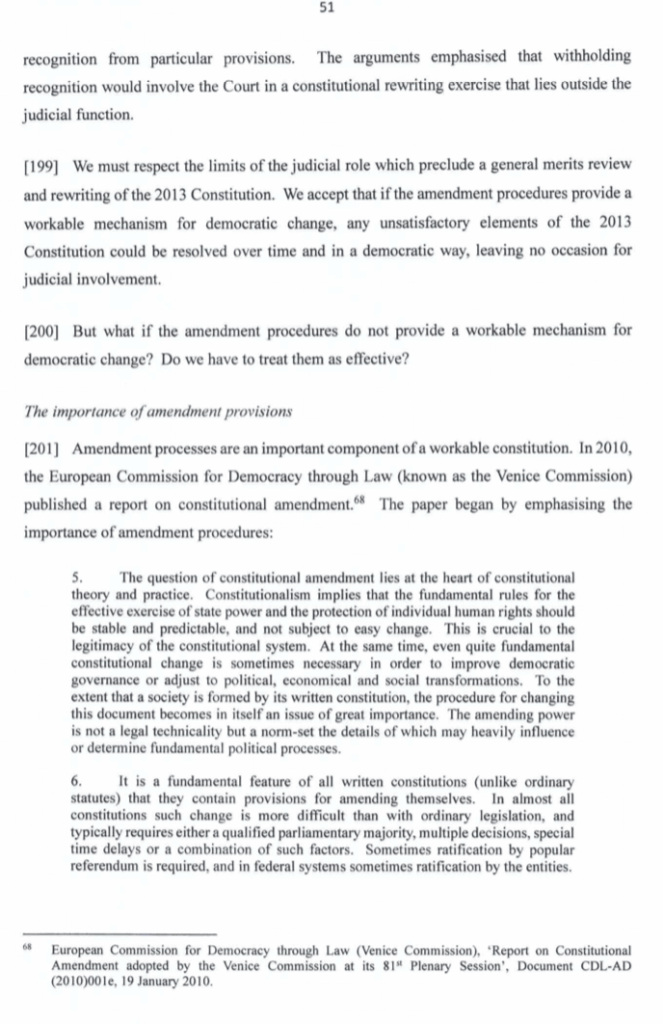
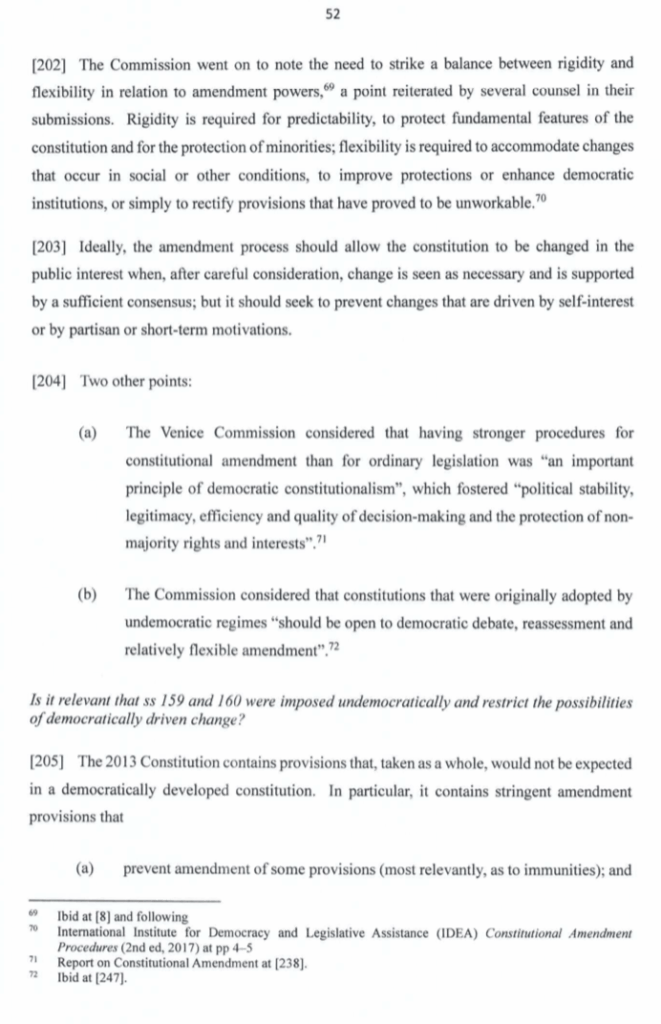
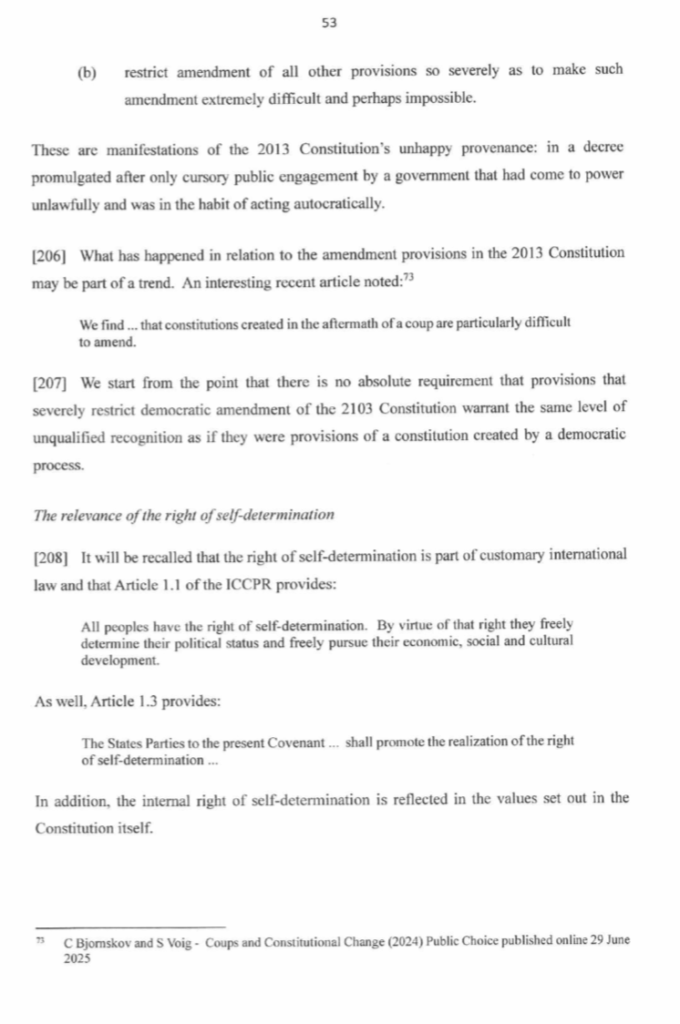
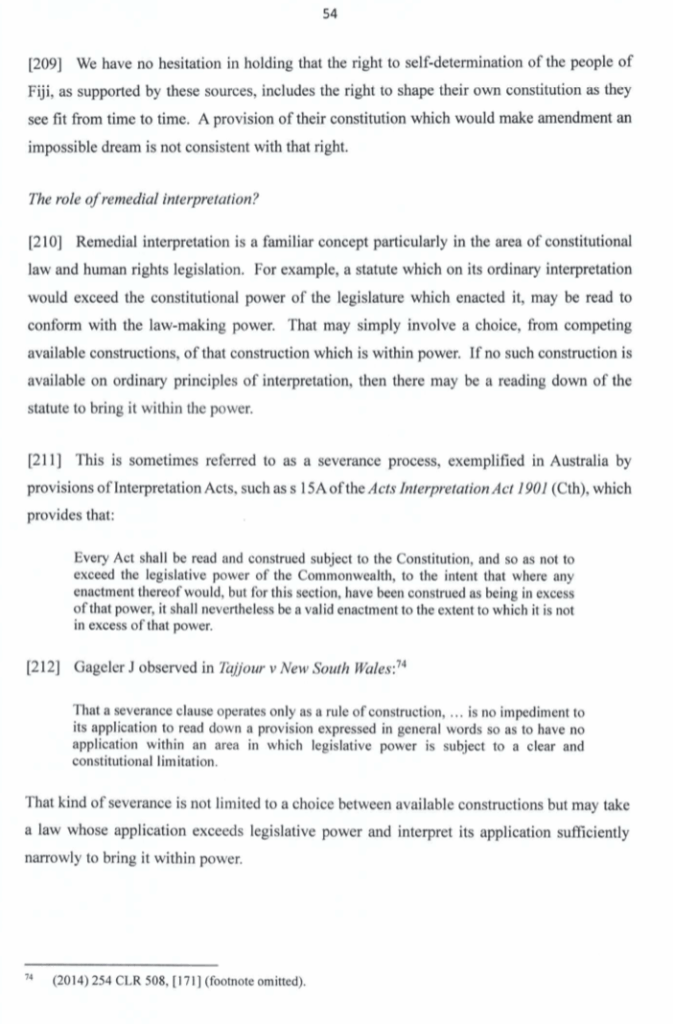
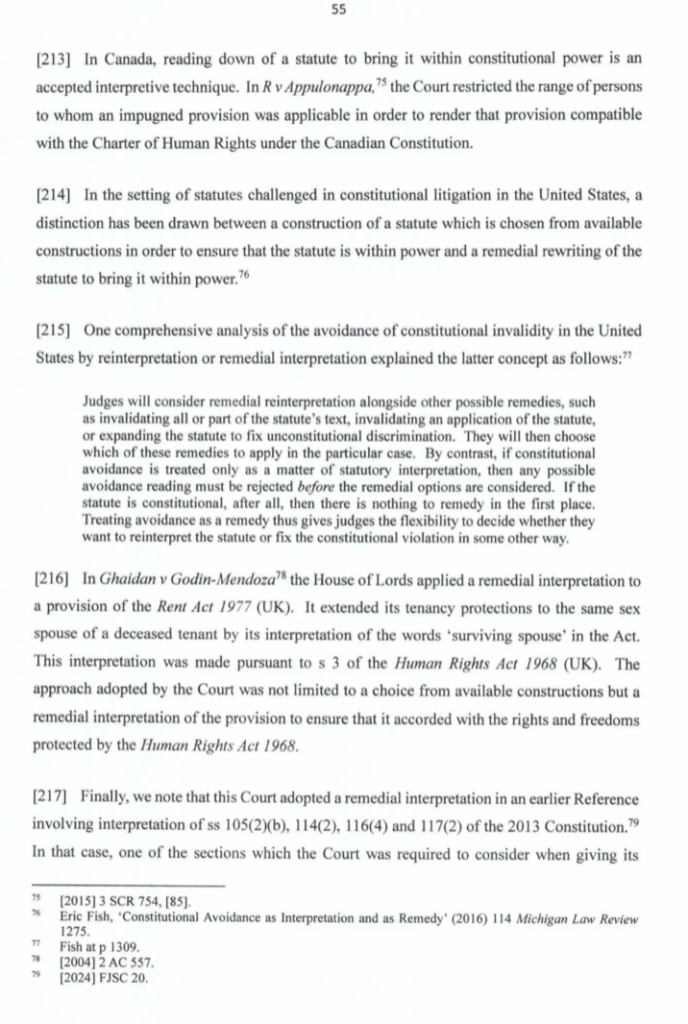
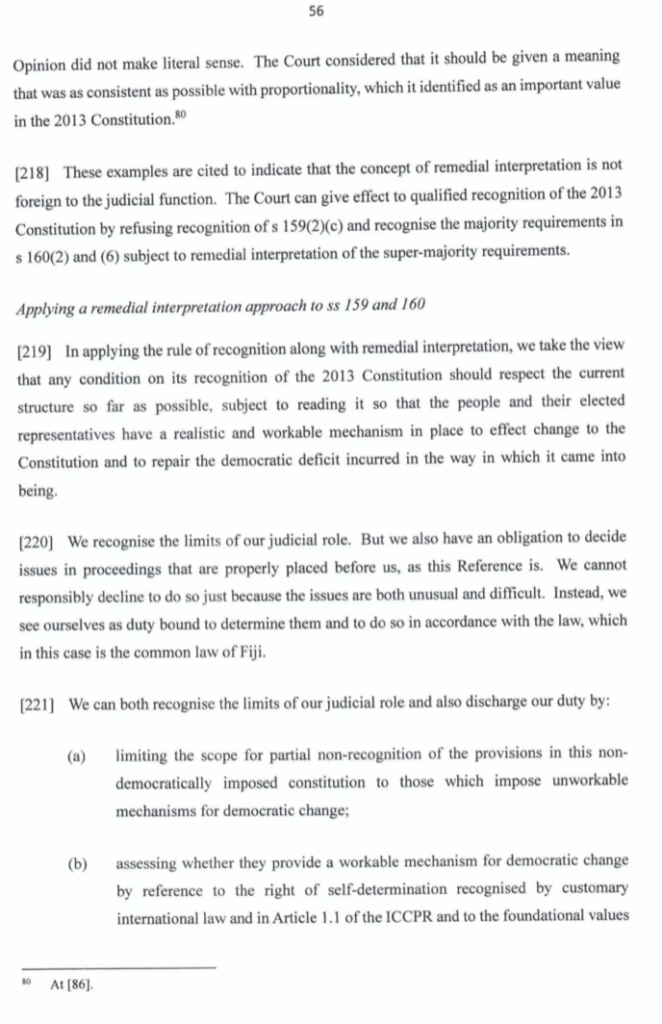
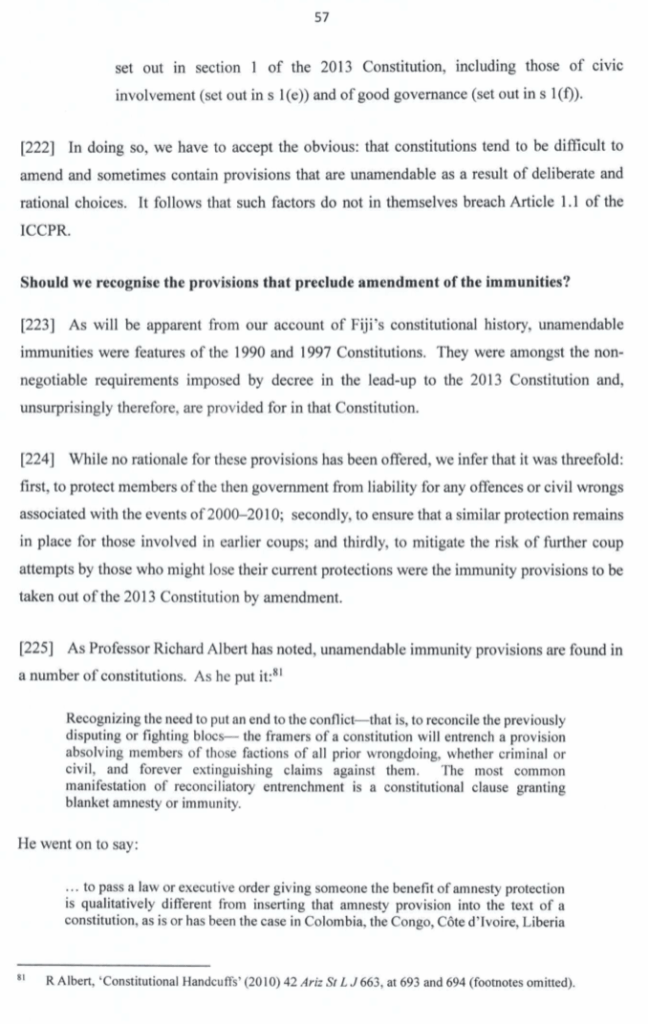
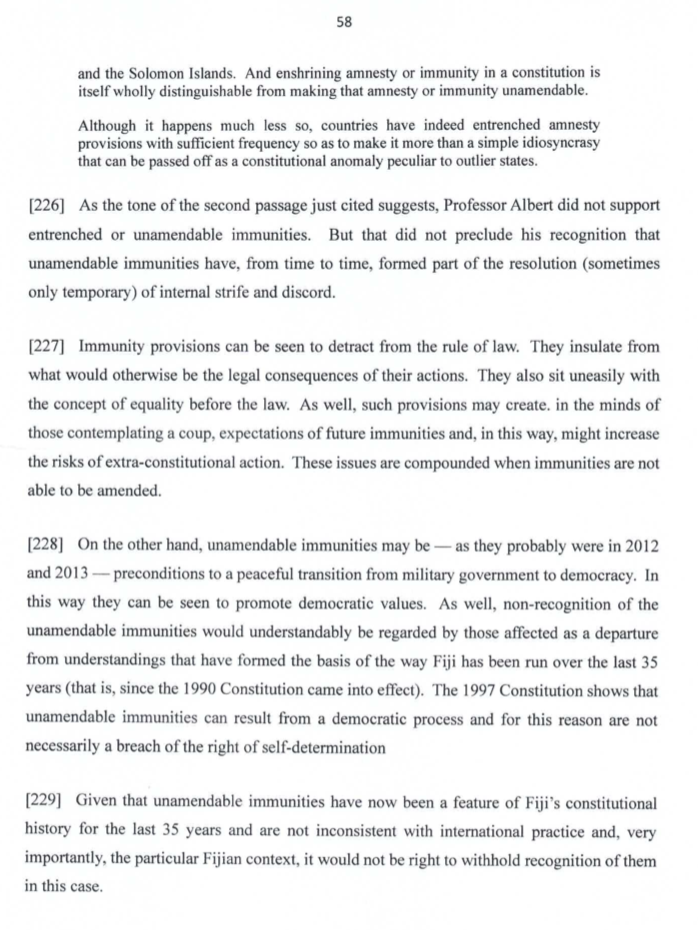
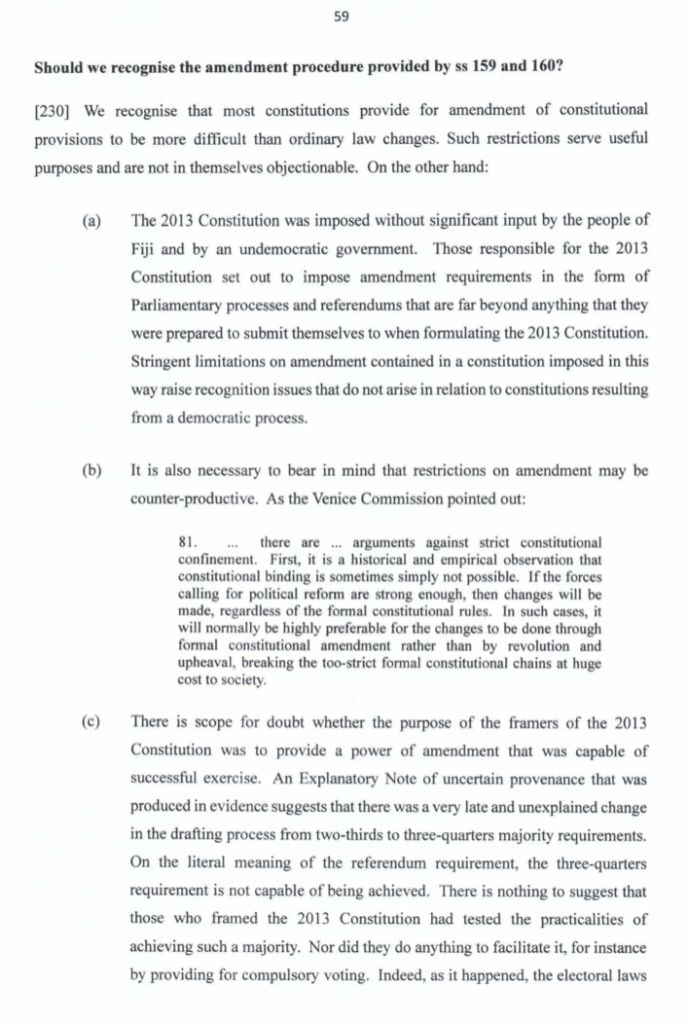
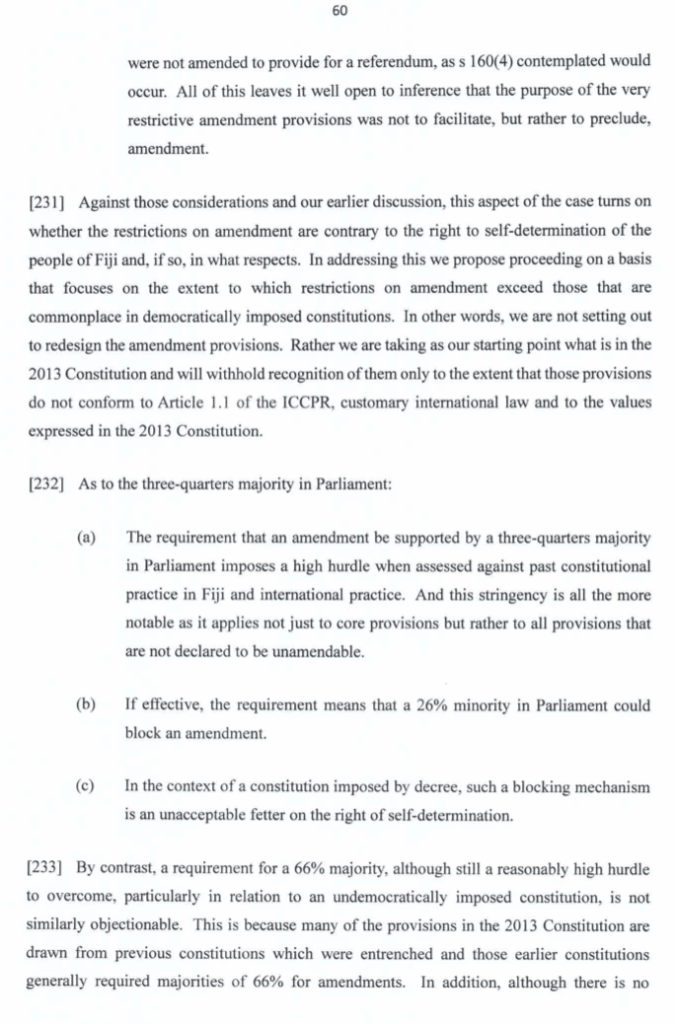
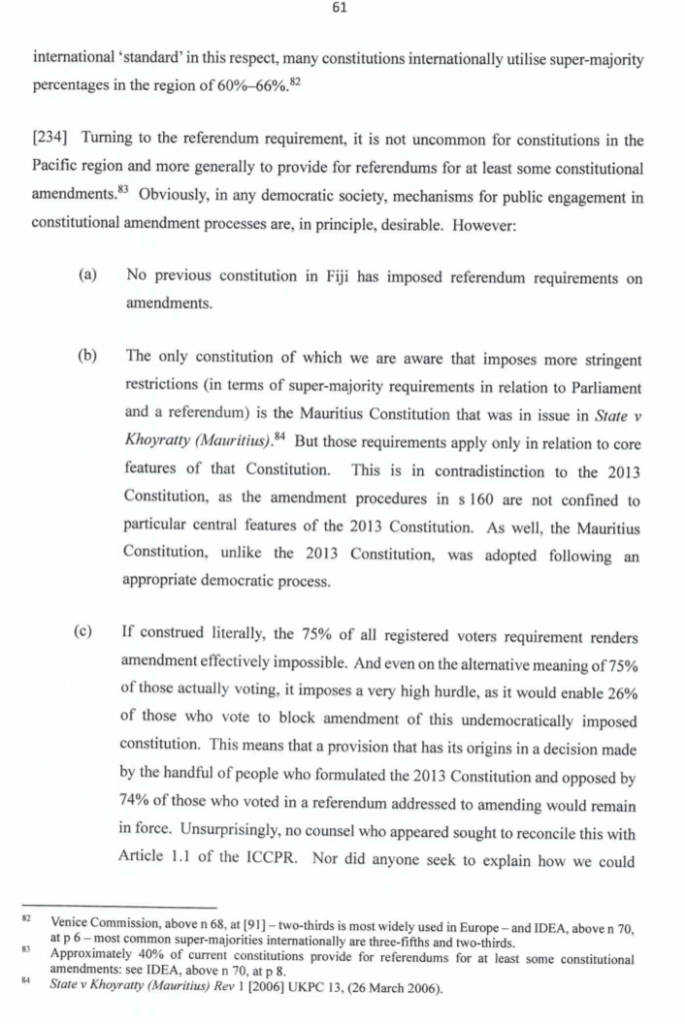
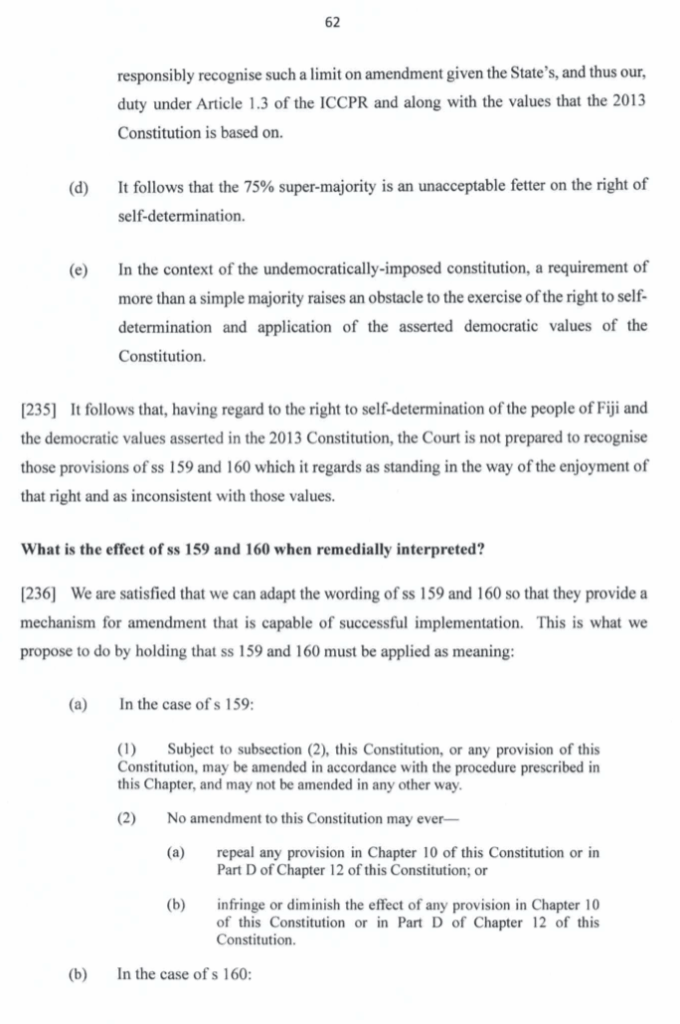
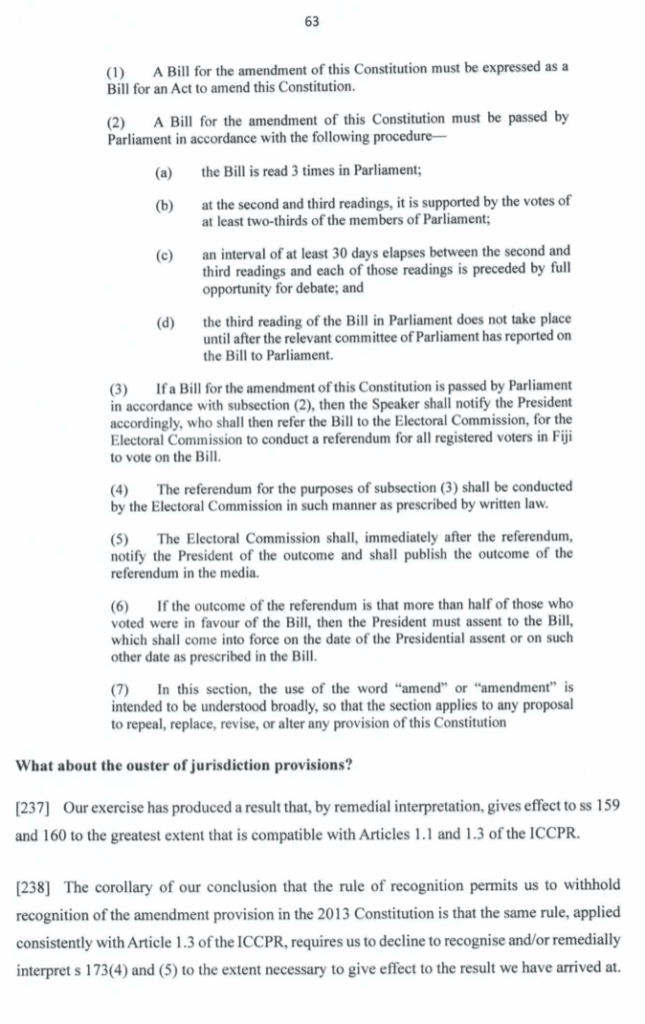
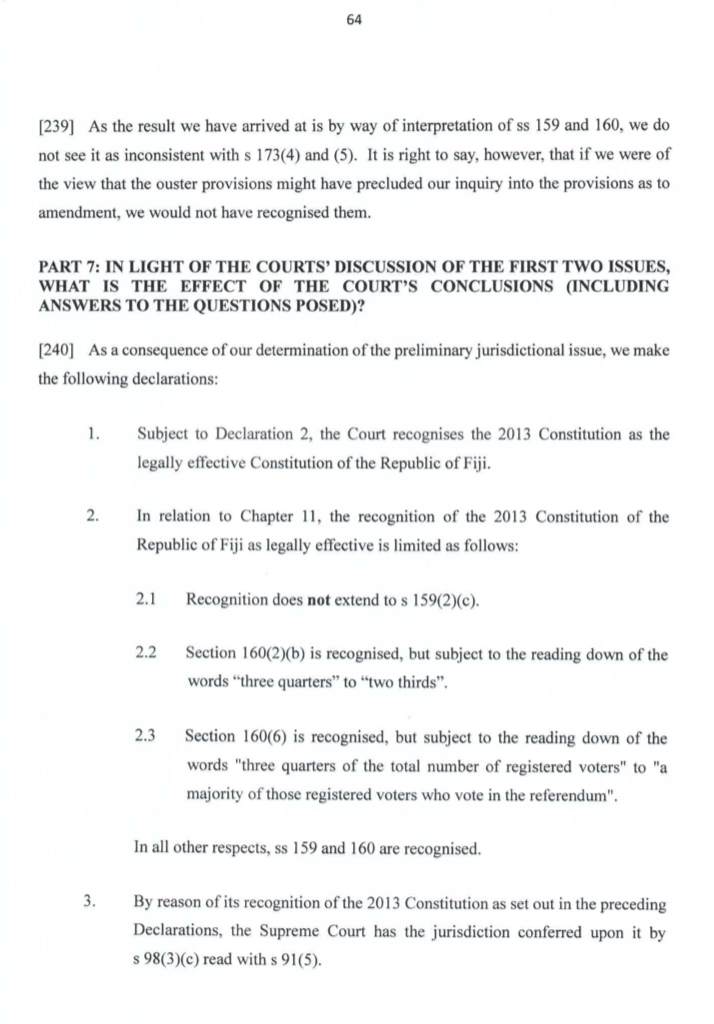
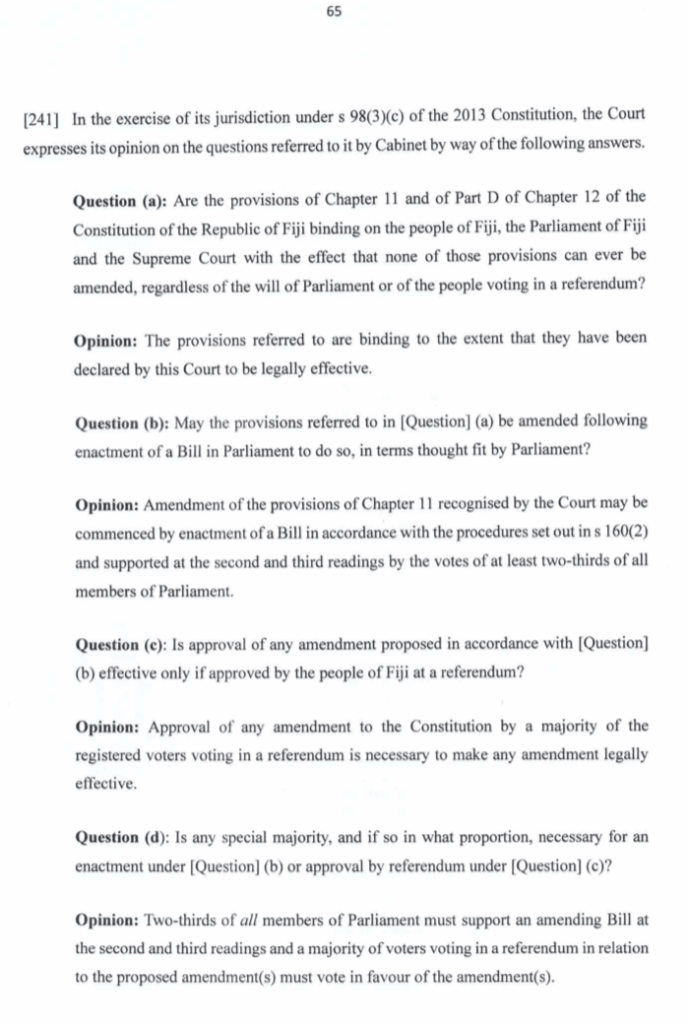
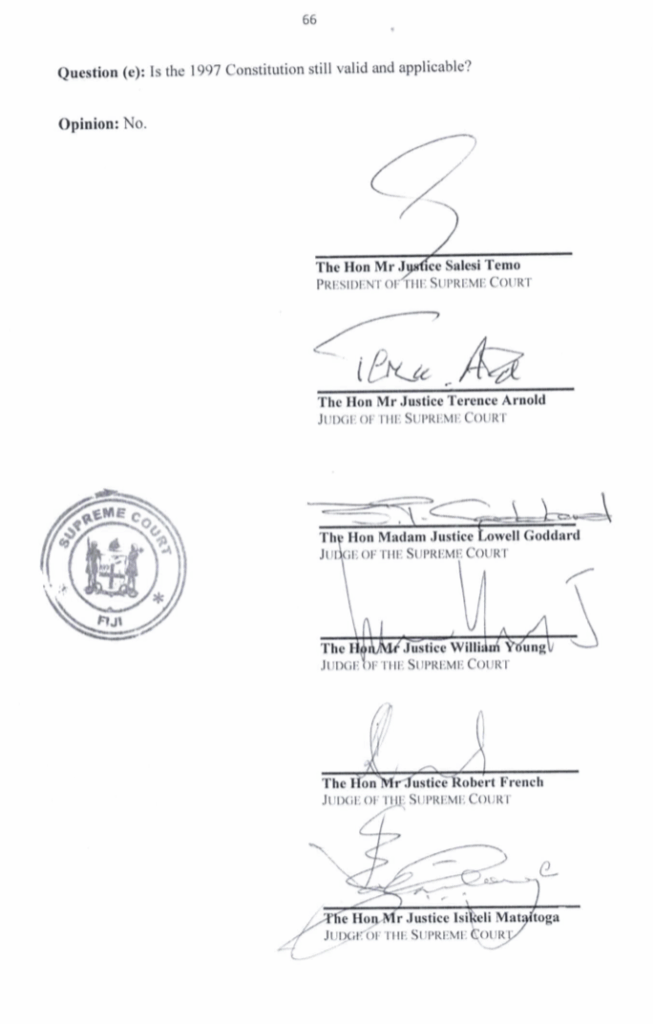

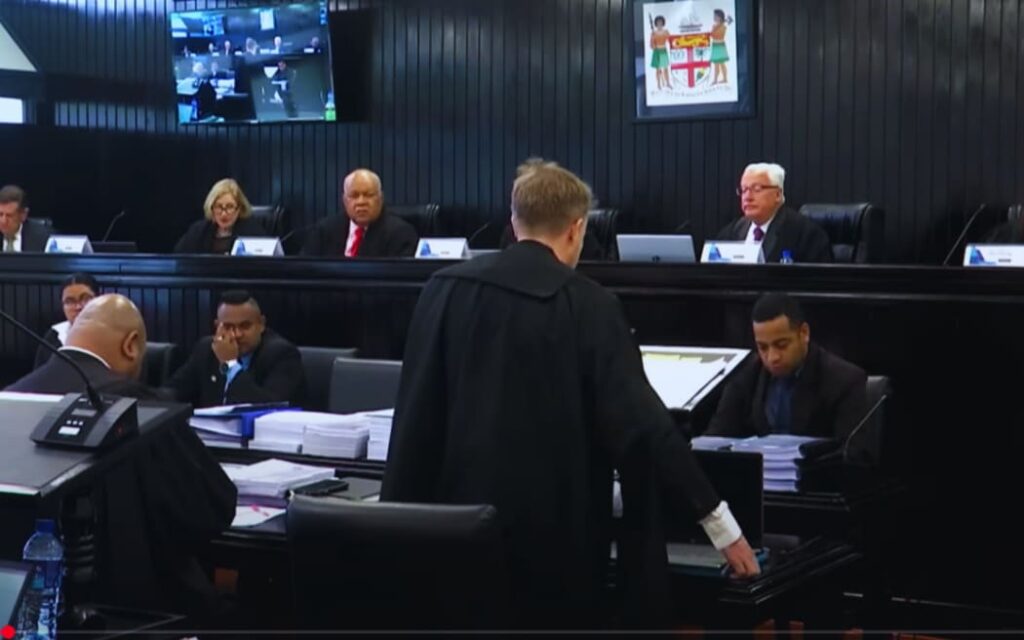
“If the 2013 Constitution is indeed the supreme law of Fiji, as Section 2 emphatically declares, then the Supreme Court’s role is limited to interpreting its provisions, not rewriting them. Any suggestion that the Court could dilute or alter the explicit 75% thresholds in Section 160 (parliamentary votes) and referendum requirements amounts to judicial overreach, bordering on constitutional vandalism.” – Victor Lal
I agree with Victor’s views.
There are so many pressing issues that the government should be focussing on. The constitution is not one of them
I agree with Victor Lal but it is spilt milk. They can use the mana of the former Chief Justice of the High Court of Australia and other judges from Australia and NZ to give credibility to the changes they will make whatever anyone else thinks.
If I was a genuine conspiracy theorist, I would say that the Australian and NZ establishments have green lighted this “opinion” to curry favour with Fiji to help keep the Chinese at bay and also benefit from the skills of those Fijians who will be persuaded to give up on the country once and for all and go and benefit their economies with their hard work.
But, of course, the conspiracy theorists could well say that. I couldn’t possibly comment. 🙂 (To coin the famous line of Francis Urquhart from the BBC drama House of Cards. Look it up.)
I saw it when it came out. I thought Ian Richardson was absolutely brilliant. Francis Urquhart’s wife so supportive of her husband’s ambitions, from memory, she looked the other way, when her husband slept with another woman to further his political objectives.
Fiji’s PM was (is) a noted philanderer with his wife’s knowledge. …. I’m digressing.
It was interesting to read the legalities on which the opinion/determination was made (Common Law pre-dating Fiji’s colonisation) and I do agree that a constitution that is made impossible to evolve with the times isn’t democratic.
I think this remedial interpretation is valid and important. I think if it was another government seeking it in a point in time where government processes in Fiji could be trusted, then there would be wider spread support of this remedial interpretation.
I don’t think the issue is with the outcome of this judicial opinion. The major issue in one of trust. Trust that the Government will only seek what is necessary in constitutional change (which the learned judges referenced), and will develop comprehensive referendum law to ensure that proper explanation and consultation is part of the referendum process, as well as proper ballot procedures. It is of course also important that referendum law sets out scope of change sought for each referendum (there are usually only one or two very simple questions addressing one or two very specific points).
I also agree with the many who have stated that this government should have focused on the more important social and health issues in Fiji before embarking on constitutional change. This indeed would have gained significantly more trust than the shenanigans we’ve all shamefully witnessed to date.
Those who hold the view that it is impossible to meet 75% provision – including the courts opinion – fail to mention that no attempt has been made at a referendum.
The provision is untested. Just speculative claims that it’s impossible to meet the provision.
Parliament could not get a simple majority leave alone 75%. Now, the coalition might have the numbers to reach 75% and then out it to a referendum.
Typical of native thinking, if things are not going their way, move the goalposts.
Remember, too, in a referendum, we can’t have several questions lumped together. It has to be one issue at a time.
If, for example, the current government does not get 75% threshold from the public, then what. Will the current government resign?
I agree that it hasn’t been tested, and I agree that some native thinking is about shifting the goal posts.
The remedial decision of this group of judges wasn’t about that – it was about comparison with internal thresholds.
I also agree that referendum law also needs to be developed that is consistent with international standards. That referendums are highly targeted and focused (not blanket change) will be the brakes this cowboy government needs until Fiji can oust them.
The best thing to do is to ignore this “opinion” – just like they did the COI findings.
But then, if you are iTaukei, and in office in your own land, you only ignore what does not suit your purpose selectively. It is called being “independent’, full of ethics and integrity – and prejudice with Fiji-style, Fijian flair.
The fact is, the Court cannot change the Constitution or the provisions of the Constitution. The opinion is totally flawed in law and sets a terrible precedence.
It is not just the precedence in law which is bad, it is at least two judges who are not fit for purpose to sit on any bench of any court.
Where is the opposition and where are all the NGOs and the media and all the tabetabe “investigative” journalists.
Mass public protest against the SC and its judges demanding their resignation and against the ruling may set the process of democracy and peoples power.
Come over from where you are overseas and organise the mass public protest you are promoting.
Unpopular and alarming news:
1) In 2022, Australia had a motor vehicle death rate of approximately 4.54 per 100,000 people, while Fiji’s rate was significantly higher at roughly 30.7 deaths per 100,000 people. The death rate per registered vehicle is about 40 times higher in Fiji, so a reminder to always use seat belts.
2) The current rate of HIV infection in Fiji is 40 times higher than in Australia.
(Fiji: In 2024, 1 in 940 became infected with HIV
Australia: In 2024, 1 in 38,000 became infected with HIV.
https://www.abc.net.au/news/2025-03-14/hiv-fiji-pacific-drug-use-addiction-bluetoothing/105043402 )
Perhaps the Rabuka government are overwhelmed by the real issues in Fiji, so kava, entitlement, racial blame and the constitution preoccupy them.
All unpopular and alarming news is the fault of the Indo-Fijians.
So reported drokadroka and ling ling “commission.” And ask the gcc.
Vulagi bad. Itaukei good.
In all the exuberance about the SC’s opinion, everyone seems to have forgotten about the dodgy past and present of two local judges. The dodgy past and present of the two local judges makes the “opinion” invalid.
So it is as if nothing happened after all the drama and the waste of time and money by all these prominent and high powered lawyers from within and abroad.
Only parliament and the people can change the Constitution. The “opinion” by the SC is not enforceable. So the PM should wipe the silly grin from his face. He does not have the numbers.
Question: can this “opinion” be appealed?
If yes, then who could? Political parties that and/or the law society? Civil organizations?
If yes, who’d hear the appeal?
The real leader of Fiji Indians and the man who can protect their rights is Chaudhry. Biman on the other hand is a nincompoop, a betrayer and a badia with no balls to stand up to Rabuka or PAP. Biman is only for himself. He is not fit to polish Chaudhry’s shoes.
This is where Biman and NFP have taken us minorities to:
‘Minority rights at risk under new Constitution amendment rules’
Fiji Labour Party leader Mahendra Chaudhry has sounded the alarm over the potential erosion of minority rights following the Supreme Court’s opinion that the 2013 Constitution remains legally effective, but open to amendment under less stringent conditions.
While the court upheld the Constitution’s validity, it declined to recognise the original 75 per cent double super majority amendment rule, opening the door to easier changes.
This shift, Mr Chaudhry argues, could have serious implications for Fiji’s minority communities, particularly the Indo-Fijian population.
The Supreme Court’s recent ruling on the 2013 Constitution, issued last week, stated that its interpretation is grounded in Fiji’s common law tradition, commencing from the British annexation in 1874. However, prior to annexation, the Kingdom of Fiji, established between 1871 and 1874 under King Cakobau, operated as a sovereign legal entity with its own constitution, Supreme Court, and comprehensive legal framework addressing significant offenses such as murder, arson, rebellion, and treason.
This pre-annexation legal system emphasized a robust commitment to the rule of law and accountability. Had this framework been fully integrated into Fiji’s post-colonial common law heritage, it might have shaped a different constitutional interpretation.
Notably, the Supreme Court may not have endorsed the expansive immunity clause in the 2013 Constitution, given the Kingdom’s legal principles that prioritized the prosecution of serious crimes, including treason.
Such an approach would likely have supported a more stringent judicial stance, curbing impunity and reinforcing accountability for acts of treason and other grave offenses.
It is very much in the supreme court’s interests that the expansive immunity provisions remain entrenched and non-negotiable given that one, if not both, rabid ethno-nationalist local judges are benefiting from the same provisions.
Now Baiman is a crafty fella behind that nasty grin… He is making rabuka look stupid at every turn. Because you see a lot of itaukei quite like Baiman judging by social media comments. Baiman believes he can get a lot of votes come next elections and become the next Prime Minister. He is also skillfully being assisted by Kamikamica and some others.